Chukka Caribbean Adventures, with its stunning white sand beaches, turquoise waters, and rich biodiversity, represents a dream destination for many travelers. At the heart of this enchanting region, one company stands out for its commitment to sustainable tourism and customer experience: Chukka Caribbean Adventures.
Recently, Chukka was honored as the “World’s Leading Destination Experiences 2024” at the 31st World Travel Awards, celebrating its role as a leader in the adventure tourism industry. This article explores the impact of Chukka Caribbean Adventures on the tourism sector, its innovative approach, and the reasons it has become a benchmark in tourist experiences.
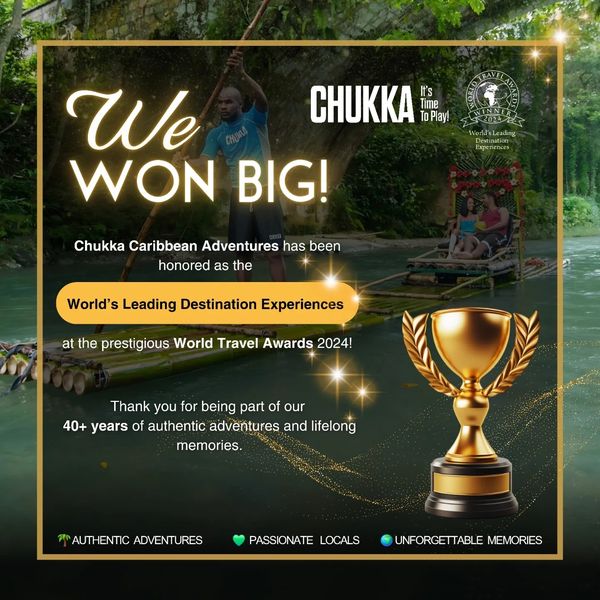
A Commitment to Sustainable Tourism
Chukka Caribbean Adventures was founded to provide authentic experiences while preserving the environment and supporting local communities. The company is devoted to protecting the fragile ecosystems of the Caribbean by integrating sustainable practices into every aspect of its operations. This includes using eco-friendly materials, reducing waste, and raising customer awareness about the importance of conservation.
Marc Melville, the CEO of Chukka, stated: “Our mission is to create extraordinary experiences that reflect the beauty and culture of the Caribbean while respecting our environment.” This commitment to sustainability has allowed Chukka to stand out in an increasingly competitive sector, where travelers seek options that positively impact the communities they visit.
Diverse and Immersive Experiences
Chukka Caribbean Adventures offers a wide range of activities that go beyond simple tourist excursions. Whether outdoor adventures, cultural immersions, or adrenaline-pumping activities, each experience is designed to foster a deep connection with the environment and local communities.
Eco-Adventures
The eco-adventures offered by Chukka allow travelers to discover the unique biodiversity of the Caribbean. From kayaking through mangroves to hiking in tropical forests, each activity is guided by experts who share their knowledge of local wildlife and flora. These educational experiences enable visitors to understand the importance of preserving these ecosystems and encourage responsible tourism practices.
Cultural Immersions
The cultural aspect of Chukka’s offerings is equally enriching. Visitors can participate in artisanal workshops, explore local cuisine, or attend traditional music and dance performances. These immersions not only entertain; they also support local artisans and artists, creating a virtuous cycle where tourism directly benefits communities.
Thrilling Activities
For thrill-seekers, Chukka Caribbean Adventures offers exhilarating activities such as zip-lining, rafting, and scuba diving. These experiences are designed to provide an adrenaline rush while adhering to the strictest safety standards. By integrating these activities into a sustainable framework, Chukka ensures that visitors can enjoy adventure without compromising environmental integrity.
The Impact of the World Travel Awards
Receiving the title of “World’s Leading Destination Experiences 2024” at the World Travel Awards is a significant achievement for Chukka Caribbean Adventures. These awards, often compared to the “Oscars of Travel,” recognize leaders who innovate and drive excellence in the tourism sector. This distinction shines a light not only on the hard work of the Chukka team but also on the growing importance of sustainable tourism globally.
A Well-Deserved Recognition
This recognition crowns over 40 years of experience in the adventure tourism sector. Since its inception in 1983, Chukka has adapted to market changes and consumer expectations while remaining true to its core values. The company’s ability to innovate while preserving its commitment to sustainability is what places it at the forefront of the industry.
In summary, Chukka Caribbean Adventures is more than just a tourism company; it is a model of success in the field of sustainable tourism. Through its commitment to environmental protection and support for local communities, Chukka offers experiences that leave a positive footprint on travelers and the Caribbean region.
By winning the title of “World’s Leading Destination Experiences 2024,” Chukka confirms its status as a leader in the tourism industry and inspires other companies to follow its example.
For travelers seeking unique and responsible adventures, Chukka Caribbean Adventures represents an essential option. Whether you’re looking for cultural immersion, an escape into nature, or an adrenaline rush, Chukka invites you to discover the best of the Caribbean while respecting the environment and supporting local communities.
Buju Banton the Jamaican Legend
New York, NY – November 19, 2024 – Buju Banton, the legendary Grammy Award-winning reggae and dancehall artist, made his mark again by delivering a mesmerizing performance at the Barclays Center in Brooklyn. The Sunday show on November 17 marked a significant return for Buju Banton to Brooklyn, New York after a 15-year absence, to the renowned arena where a sold-out crowd of over 18,500 fans were treated to an unforgettable night of music. This return was not just a concert but a celebration of culture and community through the powerful medium of reggae music.
Buju Banton took the stage in full force, clad in all white, and captivated the audience for a phenomenal two-hour performance. The anticipation in the arena was palpable as fans eagerly awaited the moment when their beloved artist would grace the stage. Special guests Gramps Morgan, Ras Shiloh, and Wayne Wonder added to the magic of the evening, with Wayne Wonder drawing cheers and nostalgia from fans with his hit songs like “Searching,” “Bonafide Love,” and “No Letting Go.” Each guest added their unique flavor to the night, showcasing the rich tapestry of reggae music.

The Overcomer Tour: A Testament to Buju Banton's Legacy
Gramps Morgan, who has been accompanying Buju Banton on the Overcomer Tour, shared heartfelt memories of their journey together, spanning over 25 years. Reflecting on their enduring partnership, Gramps Morgan expressed gratitude for the opportunity to perform alongside his brother once again and create unforgettable experiences for fans. Their camaraderie is a testament to the deep connections that reggae music fosters among its performers and audiences.
The Barclays Center was alive with energy and enthusiasm as Buju Banton & Til Shiloh Band wowed the audience with their signature hits and infectious stage presence. This sold-out show follows a string of successful performances, making it Buju Banton’s third sold-out show in New York within five months and the sixth sold-out show on the Overcomer Tour to date. The thrill of the crowd, the vibrant lights, and the powerful beats created an atmosphere that resonated with joy and unity among the audience.
“I thank you for loving reggae music! We have shown the world that reggae music is the music of the people and will uplift the people no matter where they are from. As long as we have a chance to come together, we will. Until I see you again, I give you my heart and I leave you with my light, LOVE YOU,” expressed Buju Banton as he exited the stage, leaving the audience in awe. His words echoed the sentiment of togetherness that reggae music embodies, emphasizing the importance of community and love.
Upcoming Shows: What to Expect from Buju Banton
His Tour is a testament to his enduring legacy in the music industry and his ability to unite people through music. The Overcomer Tour continues into 2025, and fans can expect more exhilarating performances in new cities, with dates to be announced soon. The excitement surrounding these shows is immense, as many fans have been waiting for years to see his perform live.
The next stop for Buju Banton is an Intimate Concert in Jamaica on Saturday, January 4, 2025, followed by shows in St. Thomas on February 14 and St. Croix on February 15, 2025. These upcoming performances are highly anticipated by fans and are sure to be filled with the same energy and passion. Tickets for these shows are expected to sell out quickly, so fans are encouraged to act fast to secure their place at these historic events.
Stay Connected with Buju Banton
Stay tuned for more updates on The Overcomer Tour, and get ready to experience the magic of his live in concert. For more information on upcoming shows, you can visit Buju Banton’s official website and follow him on social media for the latest news and updates. Engaging with Buju Banton online allows fans to share their experiences and connect with a global community that celebrates reggae music.
With his profound impact on the genre and his unwavering commitment to his craft, he continues to inspire and uplift audiences around the world. His ability to blend powerful messages with captivating melodies ensures that his music will resonate for generations to come. Don’t miss out on the chance to witness this musical icon as he continues to spread his message of love and unity through the vibrant sounds of reggae.
Our existence relies on the fundamental pillar of nutrition. It is much more than a biological necessity; it plays a crucial role in our physical health and overall well-being. Eating is not limited to the mere consumption of food; it reflects our culture, socio-economic background, and environment.
Today, Healthy Eating and Balanced Diet have become essential topics because our dietary choices can significantly influence our health. With public health concerns on the rise, understanding and adopting responsible eating habits has become crucial for living healthily.
Healthy Eating and Balanced Diet: Are They Achievable?
A Healthy Eating and Balanced Diet should ideally be a part of daily life in the Caribbean. However, many individuals face challenges that hinder their ability to eat healthily.
Reasons for Unhealthy Eating Habits
- Economic Constraints: Many families in the Caribbean encounter economic challenges, making it difficult to prioritize healthy foods. Processed and convenient foods, often cheaper and more accessible, have become the norm.
- Availability of Fresh Produce: In some areas, particularly those reliant on imports, fresh fruits and vegetables may not be easily available. This lack of accessibility can lead to a dependence on canned or packaged foods, which are less nutritious.
- Cultural Influences: While traditional Caribbean cuisine is rich in nutrients, globalization has introduced fast food and processed options that are frequently preferred for their convenience and taste. This shift can overshadow healthier food options from local gastronomy.
- Lack of Nutrition Education: There is often a lack of awareness regarding what constitutes a Healthy Eating and Balanced Diet. Educational initiatives focused on nutrition can help individuals make healthier choices and understand the importance of local ingredients.
What is Healthy Eating and Balanced Diet?
A Healthy Eating and Balanced Diet includes a variety of foods from all food groups at every meal, including proteins, fats, and carbohydrates. It is essential to understand that carbohydrates are not just the added sugars found in beverages but also come from sources like grains, fruits, and certain vegetables. A Healthy Eating and Balanced Diet incorporates these elements at each meal, ensuring a diverse intake of nutrients that reflect the vibrant culinary traditions of the Caribbean.
The Link Between Food self-sufficiency in the Caribbean and Healthy Eating
Food self-sufficiency is a crucial concept for the Caribbean region, where economic and environmental challenges directly influence the health of populations. The interconnection between food sovereignty and healthy eating deserves close examination, as it highlights the importance of consuming local foods and promoting sustainable food systems.
What is Food self-sufficiency ?
Food self-sufficiency refers to the ability of a community or country to produce enough food to meet its dietary needs. This involves not only agricultural production but also access to healthy, nutritious, and culturally appropriate foods. In the Caribbean islands, where food imports are common, strengthening food sovereignty can reduce dependence on imported food items and improve the nutritional quality of local diets.
Impact on Health
Increased food sovereignty allows communities to consume more fresh, seasonal, and locally grown foods, which are essential for healthy eating. Local products, such as fruits, vegetables, legumes, and fish, are often more nutritious than processed imported foods. By incorporating these foods into their daily diets, Caribbean residents can benefit from improved physical and mental health.
Cost Reduction and Sustainability
Consuming local foods can also help reduce food costs. Imported products are often more expensive due to transportation and storage costs, while locally grown foods are generally more affordable. By promoting food sovereignty, communities can develop sustainable food systems that support the local economy while ensuring access to healthy foods.
Valuing Traditional Agricultural Practices
Food sovereignty also encourages the appreciation of traditional agricultural practices, which are often adapted to the region’s environmental conditions. These practices may include growing local varieties of fruits and vegetables that are not only nutritious but also resistant to diseases and climate conditions. Reconnecting with these traditional methods strengthens not only food security but also local culture and identity.
The 50-25-25 Rule: A Strategy for Healthy Eating?
The well-known 50-25-25 rule suggests that a plate should consist of 50% vegetables, 25% proteins, and 25% carbohydrates. This rule serves as a general guideline for improving one’s plate and moving towards a Healthy Eating and Balanced Diet. The 50% of vegetables should include a variety of types, many of which are locally grown and reflect the rich agricultural heritage of the Caribbean.
For proteins, choices can range from fresh fish and plant-based options to meats sourced from sustainable practices. Carbohydrates should be rich sources, such as grains and fruits that are abundant in the region.
While this rule is beneficial, it is important to note that nutrition is highly individual. People with specific health conditions may need to tailor their diets accordingly, exploring local flavors and ingredients that resonate with their heritage.
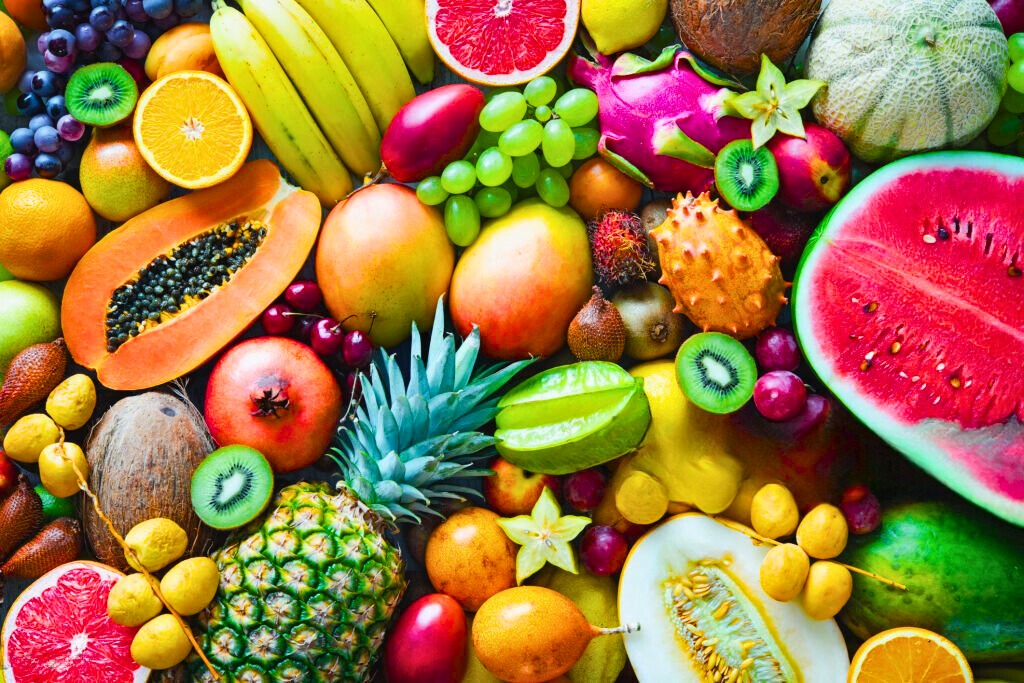
The Role of Fats in a Healthy Diet
Some might wonder if the absence of fats in the 50-25-25 rule implies that fats should be eliminated from a Healthy Eating and Balanced Diet. This is not the case; fats are essential. Most foods naturally contain some fats. For instance, olives, avocados, and coconut are staples in Caribbean cuisine, providing healthy fats that enhance both flavor and nutrition. The focus should be on how foods are prepared and the quality of fats used in cooking, celebrating the culinary techniques that have been passed down through generations.
Benefits of Healthy Eating and Balanced Diet
A Healthy Eating and Balanced Diet form the foundation of well-being. Modern medicine emphasizes prevention over treatment. A healthy diet can help avoid certain conditions like diabetes and hypertension, which are prevalent in many communities. Moreover, good nutrition positively impacts mental health. People who eat well tend to concentrate better, feel more energized, sleep better, and integrate more smoothly into society. Embracing local cuisine not only promotes health but also fosters a sense of pride in cultural identity.
Correcting the Signs of Poor Nutrition
Is it easy to correct the signs of poor eating habits? While it may not be straightforward, visible changes can occur with dietary adjustments. For instance, many individuals may experience improvements in skin conditions simply by altering their diets. Simple changes, whether drastic or gradual, can lead to significant improvements in health, especially when incorporating local fruits and vegetables that are rich in nutrients.
Choosing the Right Foods for Healthy Eating and Balanced Diet
When selecting foods, there are two scenarios. One involves seeking professional guidance to assess and create a personalized nutrition plan based on individual needs. The other involves individuals making choices for themselves. In either case, incorporating a variety of fresh fruits and vegetables into every meal is key to achieving a Healthy Eating and Balanced Diet. It isn’t necessary to completely eliminate certain foods, but reducing industrial sugars is crucial for health while emphasizing the use of local ingredients.
The Impact of Restrictive Diets on Healthy Eating
In today’s world, many people embark on restrictive diets. Are these practices truly healthy in the long term? It’s important to clarify that the focus should be on eliminating industrial sugar and processed foods rather than following extreme diets. Each person’s needs are unique, and what works for one individual may not work for another.
The Importance of Hydration in Healthy Eating
Hydration is vital for a Healthy Eating and Balanced Diet. The body cannot function properly without adequate water intake. The minimum recommendation is about 2.5 liters of water per day, but this may vary based on activity levels. Proper hydration supports a Healthy Eating and Balanced Diet, as the body needs sufficient water to function effectively, particularly in tropical climates where hydration is essential.
Access to Healthy Eating and Balanced Diet
For those who believe that healthy eating is expensive, this misconception can often stem from seeking out exotic or imported foods. It is possible to maintain a Healthy Eating and Balanced Diet using locally available products. Embracing local produce can make healthy eating more accessible and affordable, allowing individuals to connect with their cultural roots while promoting sustainability.
In conclusion, it is essential to prioritize health rather than just focusing on weight. The journey towards better health starts with personal choices. It’s important not to wait until health issues arise before making dietary changes. With a commitment to a Healthy Eating and Balanced Diet, many health problems can be prevented.
Origins of Reggae Music
Reggae Music finds its roots in various musical genres, notably ska and rocksteady. In the 1960s, Jamaica experienced a musical evolution where ska, a fast-paced and danceable genre, dominated the scene. However, over time, artists began to experiment with slower rhythms and more socially engaged lyrics, giving birth to rocksteady. It was during this period that social, political, and spiritual themes began to emerge.
The term “reggae” itself was first used in the song “Do the Reggay” by Toots and the Maytals in 1968. This new musical style is characterized by syncopated rhythms, deep bass, and lyrics that reflect the realities of life in Jamaica.
Reggae Music, a true symbol of Jamaican culture, is much more than just a musical genre. It embodies the identity, struggles, and aspirations of the Jamaican people. Since its inception in the 1960s, Reggae Music has transcended geographical and cultural boundaries, touching millions worldwide. This article explores the history of Reggae Music, its evolution, the iconic Bob Marley, the impact of contemporary artists, and recent reggae festivals.
Bob Marley: The Icon of Reggae Music
No other artist embodies Reggae Music like Bob Marley. Born in 1945 in Nine Mile, Jamaica, Marley grew up in an environment marked by poverty and inequality. His music quickly became a platform for expressing social and political concerns. With his band, The Wailers, Marley released several iconic albums such as “Catch a Fire” and “Rastaman Vibration.”
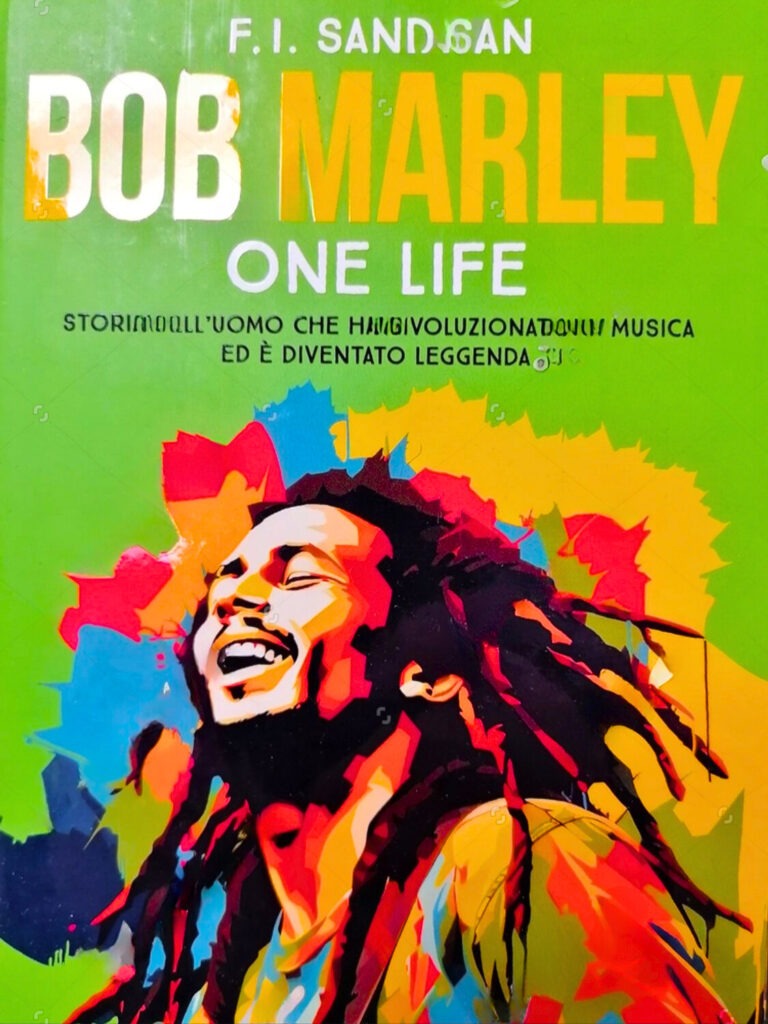
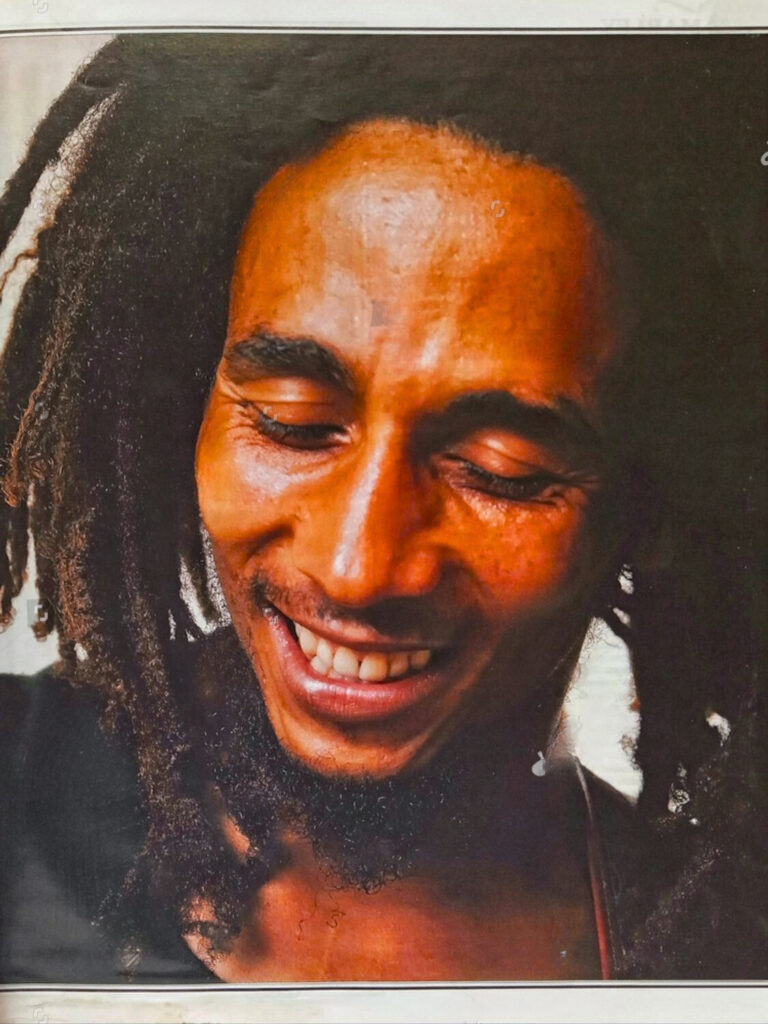
Marley’s lyrics speak of unity, peace, and resistance against oppression. Songs like “No Woman, No Cry,” “One Love,” and “Redemption Song” have become anthems for numerous social movements worldwide. By integrating Rastafarian spirituality into his music, Marley also helped popularize this philosophy on an international level. His universal message resonated with listeners from all walks of life, making him a spokesperson for the oppressed.
His performance at the Smile Jamaica reggae festival in 1976, while he was the target of an assassination attempt, showcased his resilience and commitment to music and his people. Marley passed away in 1981, but his legacy lives on. He was the first Jamaican musician to achieve worldwide fame, paving the way for many artists who followed.
The Evolution of Reggae Music
After Bob Marley, Reggae Music continued to evolve and diversify. Artists like Peter Tosh and Bunny Wailer, also members of The Wailers, carried on the reggae tradition while exploring new themes and styles. Peter Tosh, with songs like “Legalize It” and “Equal Rights,” highlighted strong political messages, advocating for cannabis legalization and human rights.
Modern Reggae Music Singers
Today, the Reggae Music scene is dynamic and innovative. Contemporary artists like Damian Marley, Bob Marley’s son, continue to explore Reggae Music themes while integrating elements of hip-hop and electronic music. His album “Welcome to Jamrock” achieved immense success, addressing social and political issues while staying true to its reggae roots.
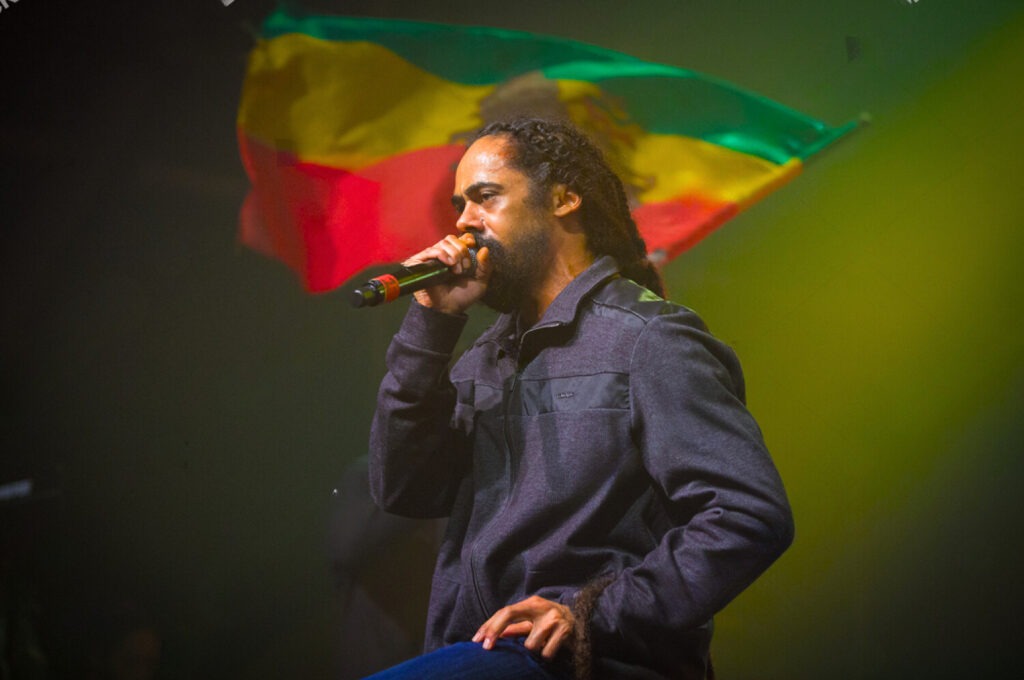
Another prominent member of the Marley dynasty is Stephen Marley. As Bob Marley’s son, he has made a name for himself with his music, combining traditional reggae and modern influences. Stephen has won several Grammy Awards for his solo albums, such as “Mind Control” and “Revelation Pt. 1 – The Root of Life.” His productions and collaborations with other reggae and reggae fusion artists continue to promote the genre globally.
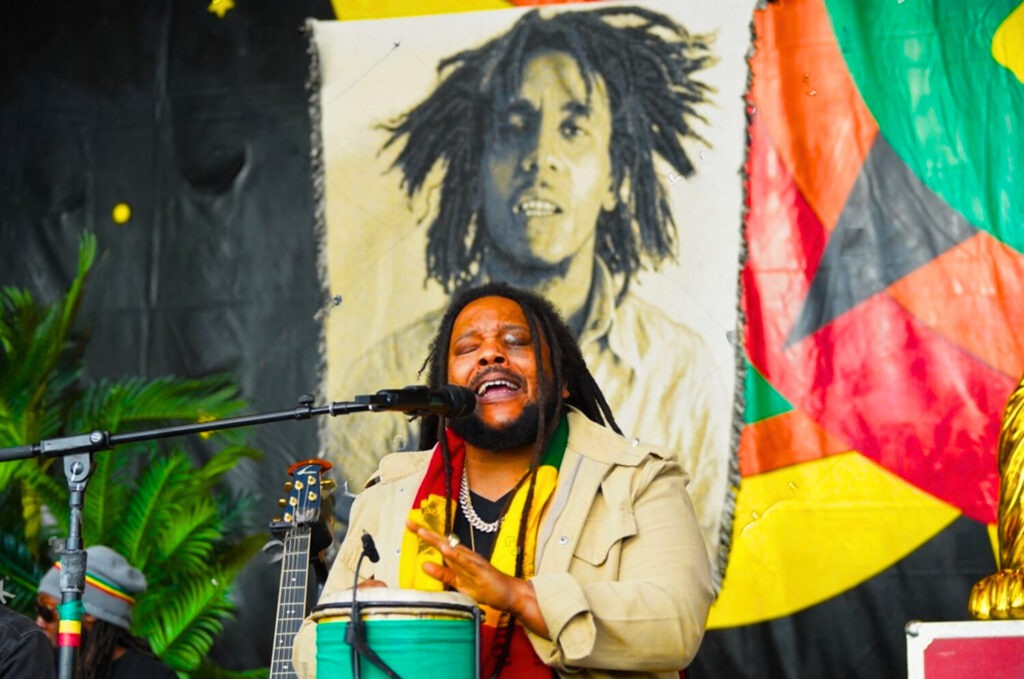
Other artists, like Protoje and Koffee, have also made their mark by integrating modern influences while preserving the essence of Reggae Music. Protoje, with his unique style, blends traditional reggae with hip-hop elements, while Koffee, a young prodigy, has captivated audiences with her sweet voice and powerful lyrics, even winning a Grammy Award for her EP “Rapture.”
Collaborations between Reggae Music artists and musicians from other genres have also become commonplace. Collaborations between reggae artists and international stars like Rihanna and Major Lazer have helped increase reggae’s visibility on the global stage.
Global Impact of Reggae Music
Reggae Music has had a significant impact beyond Jamaica’s borders. It has influenced numerous musical genres, including rock, hip-hop, and pop. Artists like The Police, Eric Clapton, and No Doubt have incorporated reggae elements into their music, contributing to the genre’s spread.
In 2024, several reggae festivals were held worldwide, celebrating this music and its heritage. Among them, the famous Reggae Sumfest, which took place from 14 July to 20 July 2024, in Montego Bay, Jamaica, attracted thousands of reggae fans, featuring performances from artists like Damian Marley, Protoje, and Koffee. This festival is considered one of the largest Reggae Music events globally.
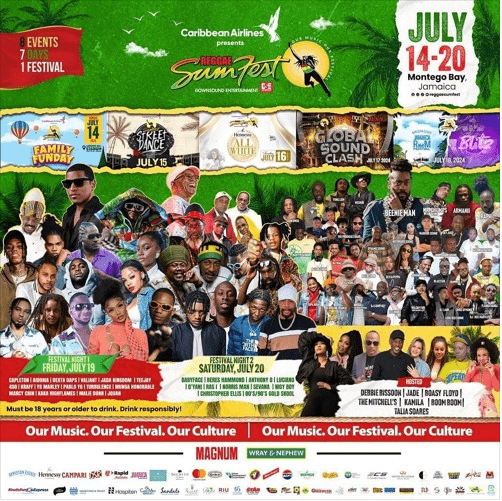
- Rototom Sunsplash (Spain): This iconic festival took place from 16 August to 21 August 2024, in Benicàssim, attracting thousands of reggae fans from across Europe. Artists like Jimmy Cliff and Ziggy Marley delivered memorable performances.
- One Love Festival (United Kingdom): took place from 02 August to 03 August 2024, this festival highlighted reggae and dancehall artists, gathering fans to celebrate love and unity through music.
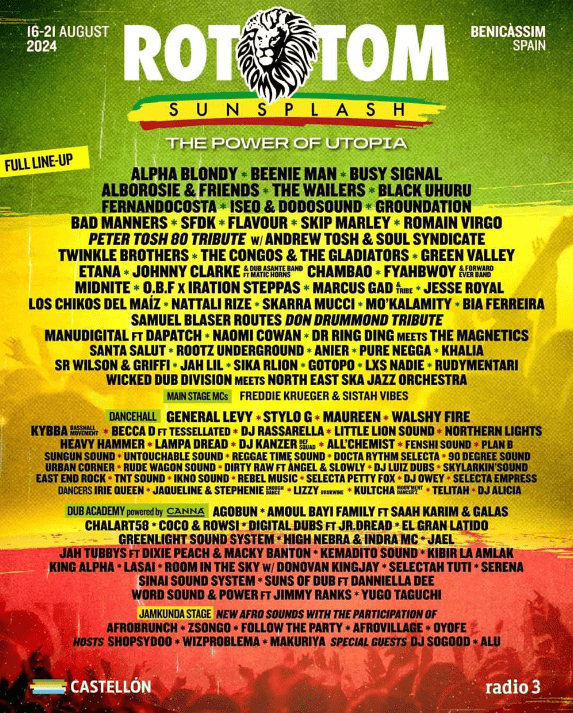
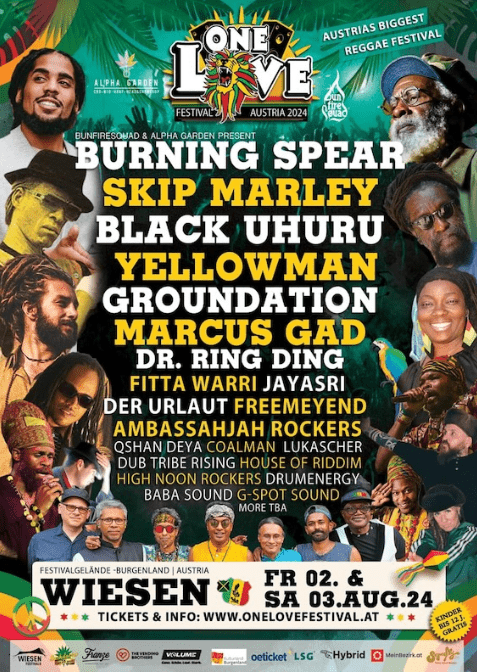
- We met Stephen and Damian Marley at the WCMF 2024. It was a memorable experience and a testament to the ongoing impact of reggae music on global culture.
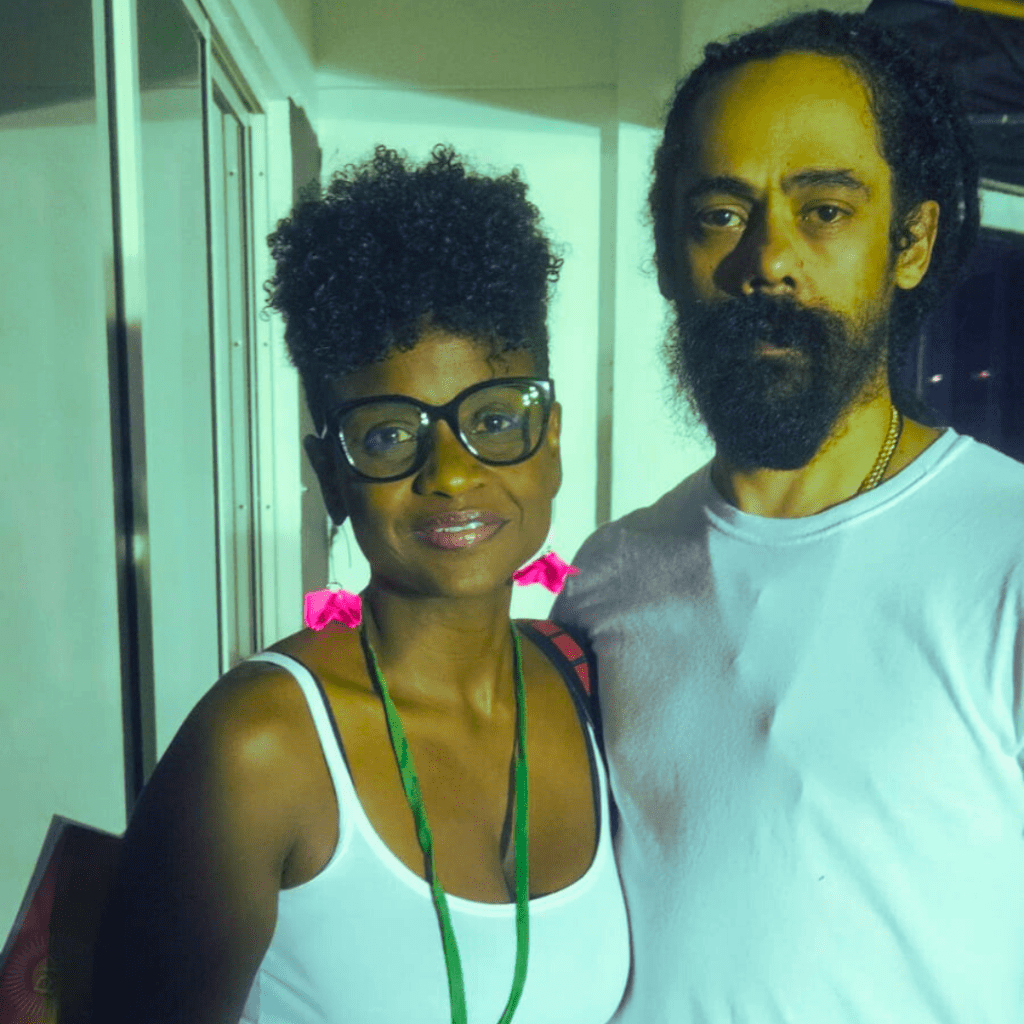
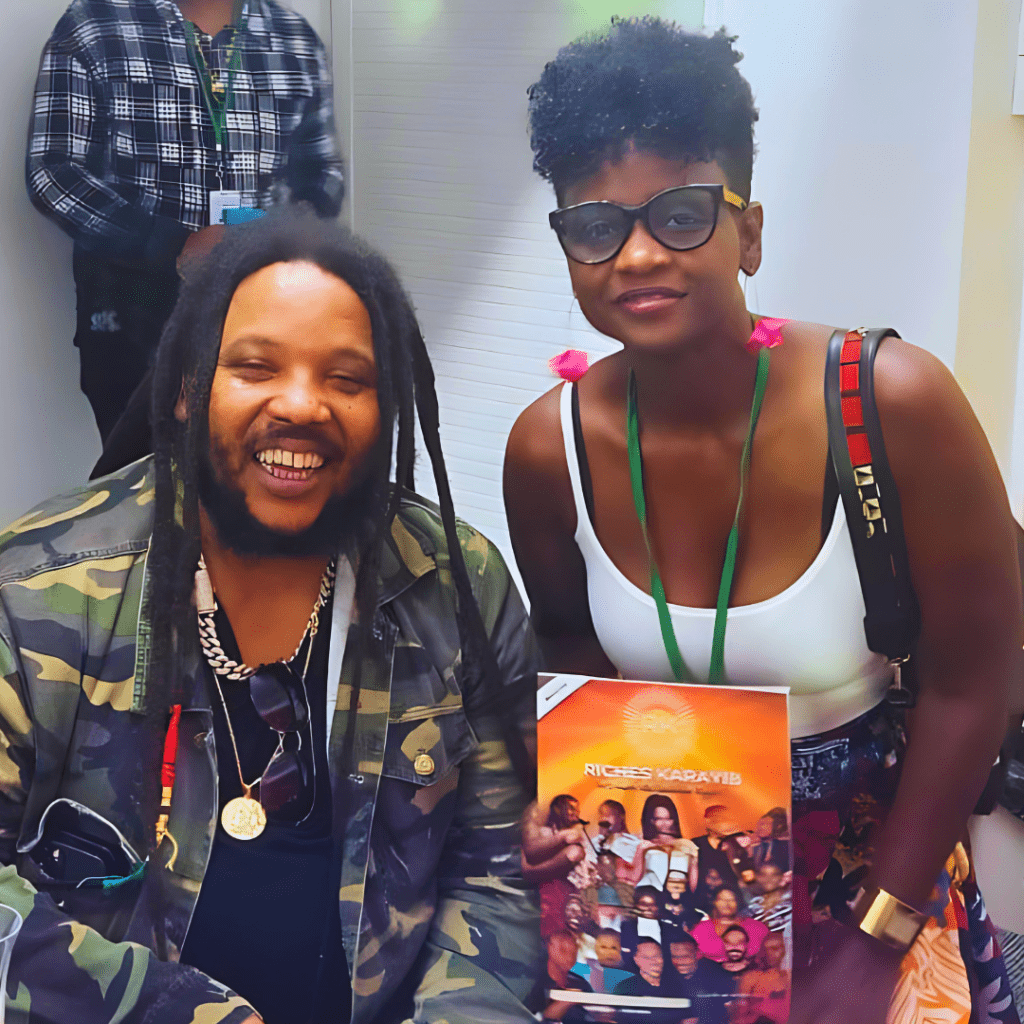
Reggae Music is more than just a musical genre; it is an expression of the culture, history, and struggles of the Jamaican people. With iconic figures like Bob Marley and a new generation of innovative artists like Stephen Marley, Reggae Music continues to evolve while staying true to its roots. Its global influence demonstrates its ability to touch hearts and transcend cultural barriers. As Reggae Music continues to develop, it remains a powerful voice for peace, love, and social justice worldwide.
Sustainable tourism in the Caribbean has become an essential aspect of the region’s development. With its rich cultural heritage, breathtaking natural landscapes, and unique traditions, the Caribbean attracts millions of visitors each year. The promotion of these cultural elements as tourist attractions is crucial for preserving local identity while meeting the needs of visitors. This article examines the challenges and opportunities associated with sustainable tourism in the Caribbean, emphasizing cultural heritage’s role in enhancing tourist experiences.
The Importance of Cultural Heritage in Tourism
Cultural heritage encompasses the traditions, customs, arts, and historical narratives that define a community. In the Caribbean, this heritage is diverse and multifaceted, reflecting the region’s complex history influenced by Indigenous peoples, European colonization, African cultures, and more. Tourists are drawn to the Caribbean not only for its stunning beaches but also for its vibrant cultures, making cultural heritage a significant driver of tourism.
By integrating cultural experiences into tourism offerings, destinations can attract visitors seeking authentic experiences. This approach not only enriches the tourist experience but also fosters a deeper appreciation for local cultures, leading to a more sustainable form of tourism.
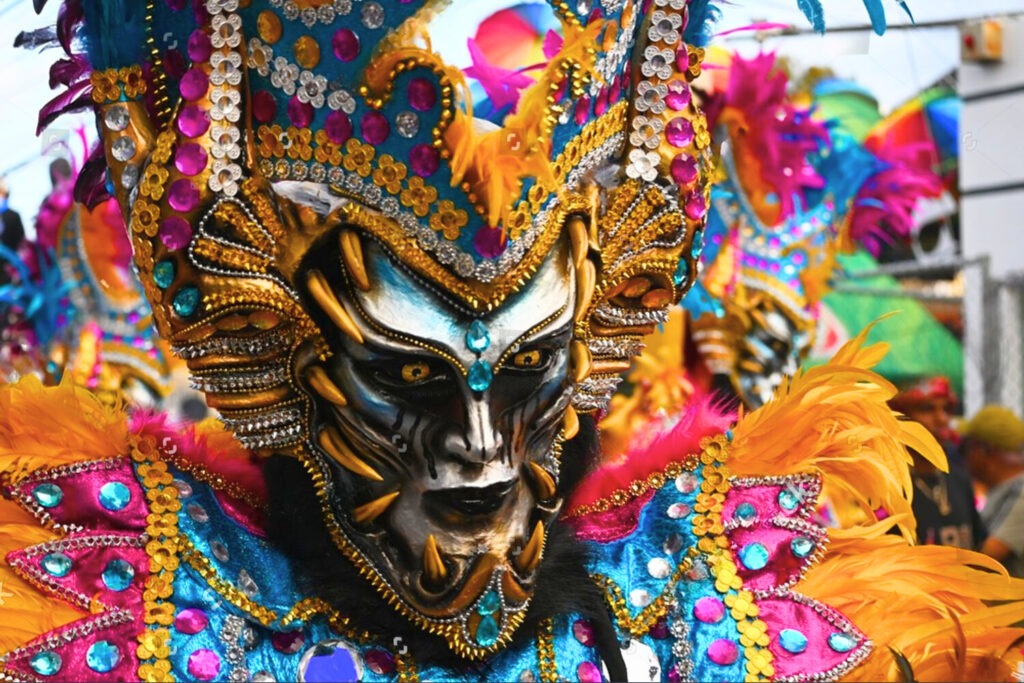
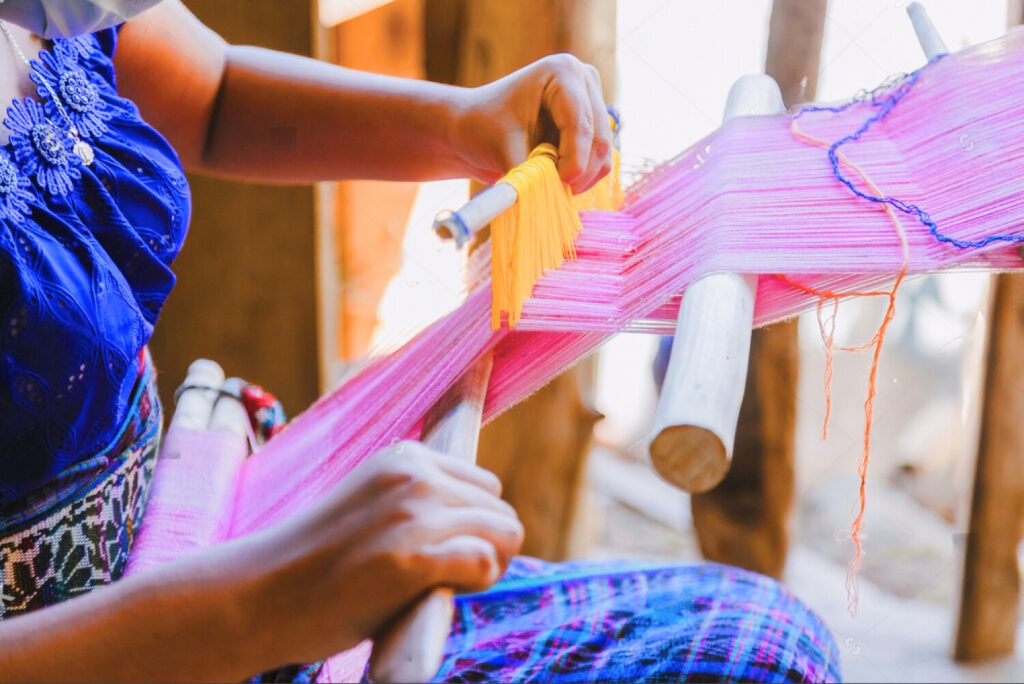
Challenges of Sustainable Tourism
Pressure on Cultural Resources
The influx of tourists can lead to excessive exploitation of cultural resources, such as festivals, traditional events, and historical sites. This pressure can compromise the authenticity and longevity of local cultural practices. Destinations often face the dilemma of balancing tourism growth with the preservation of their unique cultural identities.
For instance, traditional festivals may be altered to cater to tourist expectations, potentially losing their original significance. This commercialization can lead to a superficial understanding of the culture, with visitors experiencing a version that is tailored for mass consumption rather than genuine engagement.
Erosion of Cultural Identity
Mass tourism can sometimes result in the commercialization of traditions, leading to a dilution of cultural identity. Local practices may be adapted to meet tourist expectations, creating a disconnect between genuine traditions and those presented to visitors. The risk of cultural appropriation also arises, where elements of local culture are taken out of context and used superficially by outsiders.
Moreover, younger generations may feel less inclined to engage with their heritage if they perceive it as something primarily for tourists. This generational shift can threaten the transmission of cultural knowledge and practices, jeopardizing the long-term sustainability of local traditions.
Infrastructure and Management
Many Caribbean destinations lack adequate infrastructure to manage the flow of tourists interested in culture. This can result in challenges related to site management, preservation of artifacts, and respect for traditional practices. Insufficient funding for the maintenance of cultural sites can lead to deterioration, further diminishing their appeal to tourists.
Effective management strategies are essential to ensure that cultural sites can accommodate visitors without compromising their integrity. This may involve training local guides, implementing visitor limits, and developing educational programs that emphasize the importance of conservation.
Vulnerability to Environmental Changes
Extreme weather events, such as hurricanes, can destroy cultural and historical sites, jeopardizing the heritage that attracts tourists. The resilience of these sites is essential to ensure continued tourist appeal. Climate change poses a significant threat to the Caribbean, with rising sea levels and increased storm frequency impacting both the environment and cultural heritage.
Investments in disaster preparedness and recovery are crucial for safeguarding these sites. By building resilient infrastructures and promoting sustainable tourism in the Caribbean , destinations can better withstand environmental challenges.
Opportunities of Sustainable Tourism
Highlighting Local Traditions
Sustainable tourism in the Caribbean provides a platform to promote the arts, music, dance, and festivals that are central to Caribbean identity. Events such as Carnival in Trinidad and Tobago, Junkanoo in The Bahamas, and Reggae festivals in Jamaica showcase the vibrant cultural tapestry of the region. By integrating authentic cultural experiences into tourist offerings, visitors can discover the richness of the Caribbean while supporting local communities and patricipate to the sustainable tourism in the Caribbean.
Local artisans can also benefit from Sustainable tourism in the Caribbean. By encouraging the purchase of handmade crafts and artworks, tourism can contribute to preserving traditional skills and providing economic opportunities for local artists.
Education and Awareness
Sustainable tourism in the Caribbean offers an opportunity to raise visitor awareness about cultural and environmental issues. Guided tours, workshops, and cultural events help tourists develop a deeper understanding of local realities and the importance of heritage preservation. Educational initiatives can empower visitors to engage more meaningfully with the culture, fostering respect and appreciation.
For example, cultural immersion programs that involve community members can provide tourists with insights into daily life, traditions, and the challenges local communities face. This engagement can enhance the overall visitor experience, making it more impactful and memorable.
Community Economic Development
Focusing on culture as a tourist attraction allows local communities to benefit directly from the tourism economy. This encourages the creation of artisanal businesses, cultural tours, and services related to the arts, thus stimulating local economic development. Sustainable tourism in the Caribbean can empower communities by providing job opportunities and fostering entrepreneurship.
Moreover, when tourists spend money on local products and services, the economic benefits circulate within the community, contributing to its overall well-being. This model promotes a more equitable distribution of tourism revenues, reducing reliance on external entities.
Sustainable Partnerships
Developing partnerships among governments, cultural organizations, and the private sector is crucial for promoting Sustainable tourism in the Caribbean. These collaborations can support initiatives that preserve cultural heritage while providing enriching experiences for visitors. By working together, stakeholders can create a comprehensive approach to Sustainable tourism in the Caribbean that addresses environmental, social, and economic dimensions.
For instance, partnerships can facilitate joint marketing efforts that highlight cultural events, promoting them to a broader audience. Collaborative projects can also enhance the infrastructure necessary for managing tourism sustainably, ensuring that cultural sites are well-maintained and accessible.
To conclude, sustainable tourism in the Caribbean presents both challenges and opportunities, particularly in terms of valuing culture as a tourist attraction. By adopting environmentally respectful practices and highlighting local traditions, the region can preserve its unique heritage while offering memorable experiences to visitors. A collective commitment from tourism stakeholders, local communities, and governments is essential to create a development model that benefits all, celebrating the diversity and authenticity of the Greater Caribbean.
The path forward involves recognizing the intrinsic value of culture and heritage in tourism, fostering a sense of pride among local communities, and ensuring that tourism serves as a force for positive change. By embracing sustainable tourism practices, the Caribbean can continue to thrive as a premier destination while honoring its rich cultural legacy.
Celebrating the Caribbean’s Cultural Diversity
Between 2016 and 2019, UNESCO continued to recognize the Caribbean’s rich intangible cultural heritage, celebrating traditions that showcase the region’s diversity and vibrant history. These recognitions by UNESCO reveal the deep cultural practices and customs that have survived generations, connecting the past with the present. This article focuses on the elements honored during this period, highlighting their significance to the Caribbean identity.
2016
-
Dominican Republic: Music and Dance of Merengue
For UNESCO Merengue is not just a genre of music in the Dominican Republic but a national symbol. Its fast rhythms and lively dance steps are part of every major celebration. The music blends European and African influences, representing a fusion that is emblematic of the island’s history and cultural makeup. -
Cuba: Rumba
Rumba is a joyous celebration of Cuban identity through a fusion of African rhythms and Spanish melodies. It is more than a musical genre—rumba incorporates dance, percussion, and vocals, creating an art form that fosters community, expression, and connection with heritage. -
Venezuela (Bolivarian Republic of): Carnival of El Callao
El Callao Carnival is a colorful and vibrant cultural event that dates back to the 19th century. It celebrates African, indigenous, and Caribbean roots through parades, masquerades, and traditional music. The carnival symbolizes unity and cultural resilience in the face of hardship, making it a significant event for Venezuelans. -
Mexico: La Charrería, Equestrian Tradition
La Charrería is a traditional equestrian practice among cattle-raising communities in Mexico that combines cultural heritage and competitive sport, showcasing skillful performances while promoting important social values to younger generations.
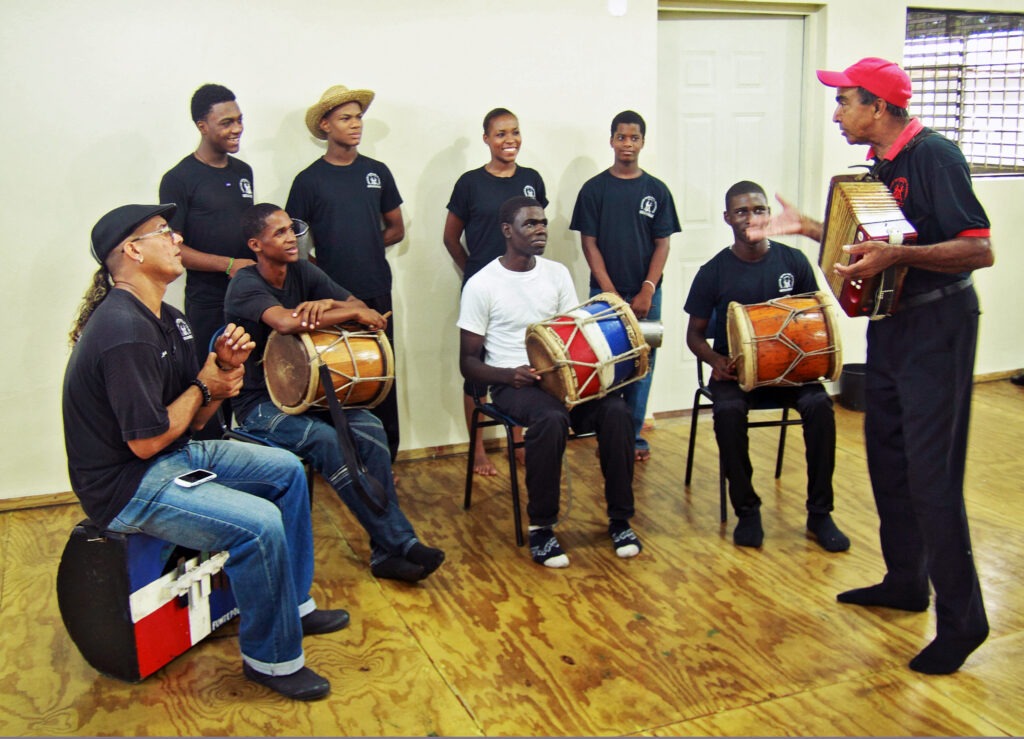
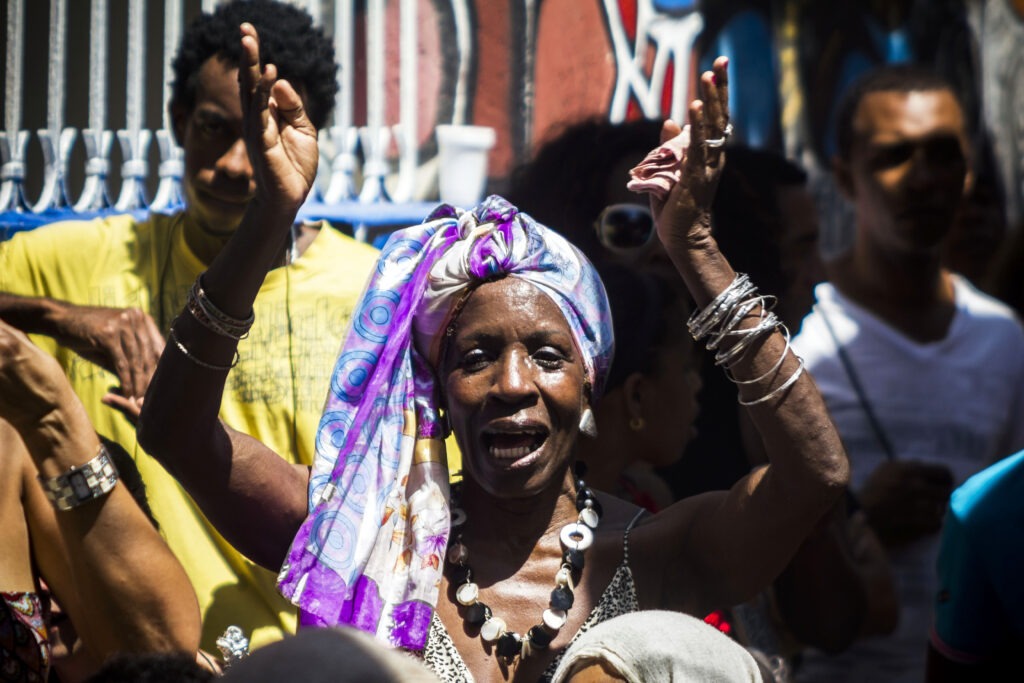
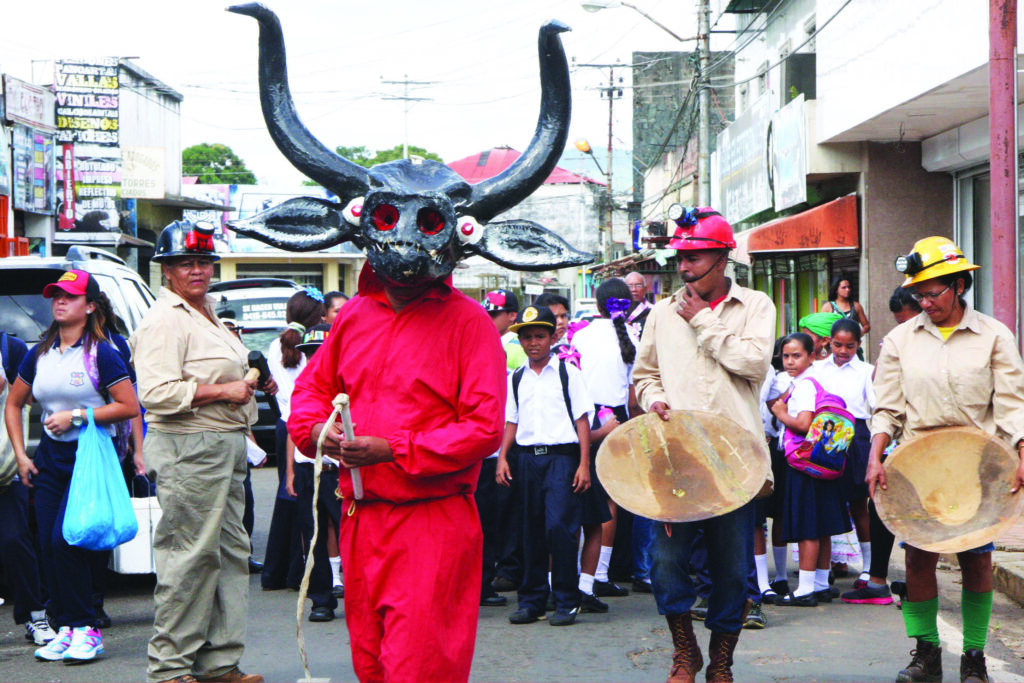

2017
-
Colombia and Venezuela (Bolivarian Republic of): Work Songs of the Plains (Chants de travail des llanos)
For UNESCO, these songs, sung by the cattle ranchers of the Orinoco Plains, are an essential part of the daily life of llaneros (plainsmen) in Colombia and Venezuela. The songs are used to communicate with the animals and among workers, celebrating the deep connection between humans, animals, and the vast plains. -
Cuba: Punto
Punto is a traditional Cuban music genre combining poetic lyrics with melodies played on stringed instruments. Originating from Spanish peasant music, it is often performed in community gatherings and has become a key part of Cuban cultural identity, symbolizing a deep connection to the land and rural life. -
Panama: Techniques for Weaving Talco Hats and Pintas
This tradition involves intricate craftsmanship in the weaving of talco hats, crinejas, and pintas, often made from plant fibers. The practice is passed down from generation to generation, ensuring the preservation of the craft and its cultural significance in Panama.
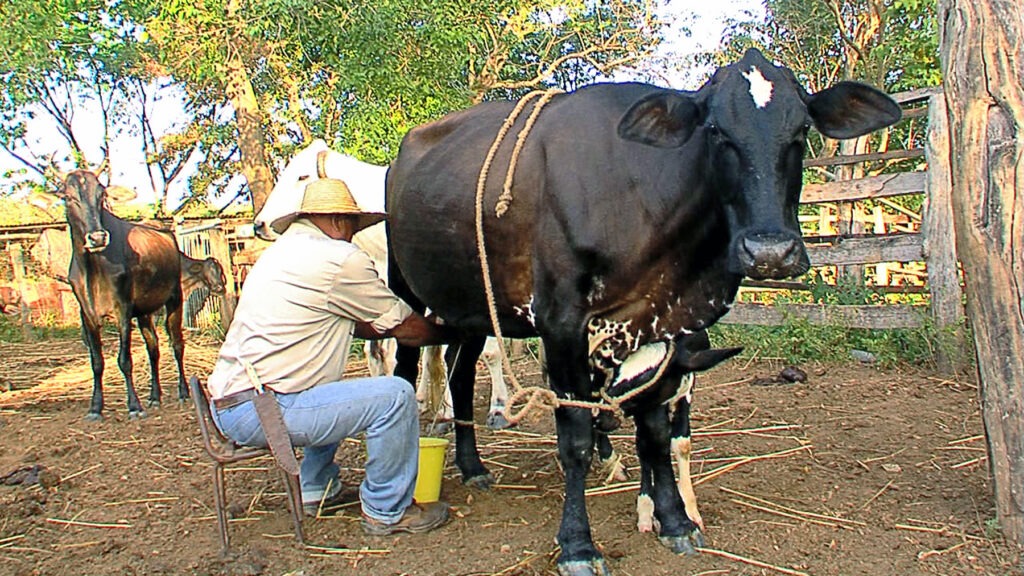
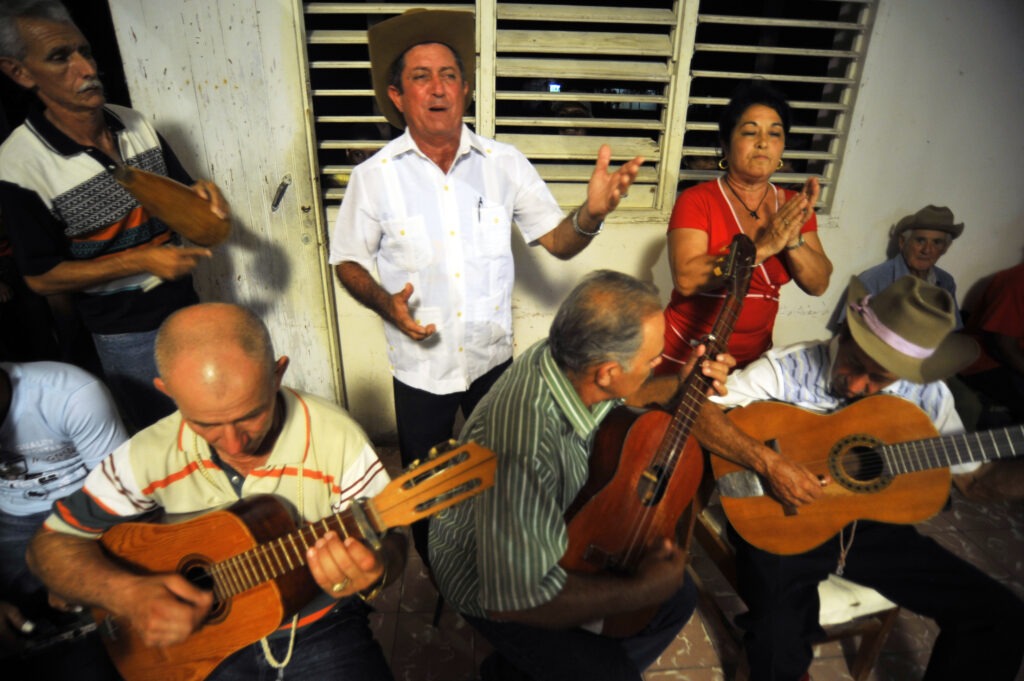
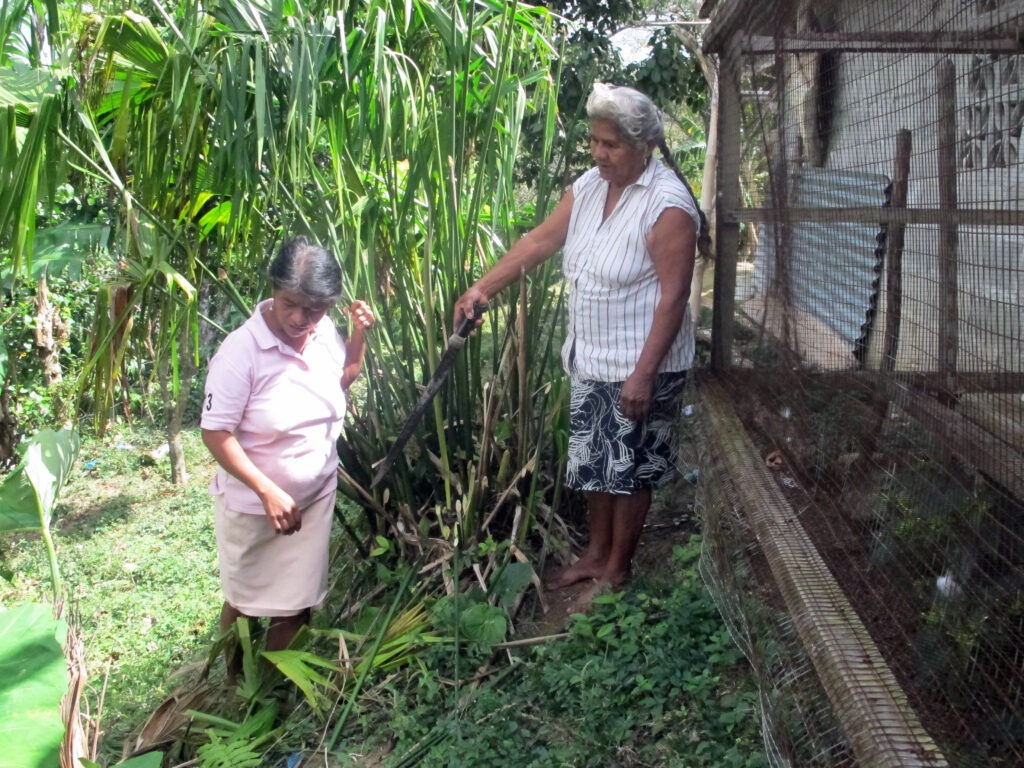
2018
-
Jamaica: Reggae Music
For UNESCO, Reggae, synonymous with Jamaica, is more than just music; it is a cultural force that promotes messages of peace, love, and resistance. Popularized by icons like Bob Marley, reggae’s rhythms and messages have influenced people worldwide, while remaining deeply rooted in the island’s African traditions. -
Panama: Expressions and Rituals of Congo Culture
In Panama, the Afro-descendant Congo culture is celebrated through songs, dances, and rituals. These practices are not only a form of entertainment but also acts of resistance, passed down from enslaved Africans to their descendants. Congo rituals are performed in festivals that remember the struggles of the African diaspora and the fight for freedom. -
Cuba: Parrandas (Traditional Cuban Festivals)
Originating in central Cuba, parrandas are lively celebrations that mix music, dance, and fireworks. These festivals bring communities together to celebrate their shared identity and provide a stage for collective creativity. - Mexico: La Romería, Ritual Pilgrimage Cycle
La Romería is a deeply rooted annual tradition celebrated on October 12 in honor of the Virgin of Zapopan, culminating a ritual cycle with over two million participants, vibrant indigenous dances, and community activities that strengthen social ties.
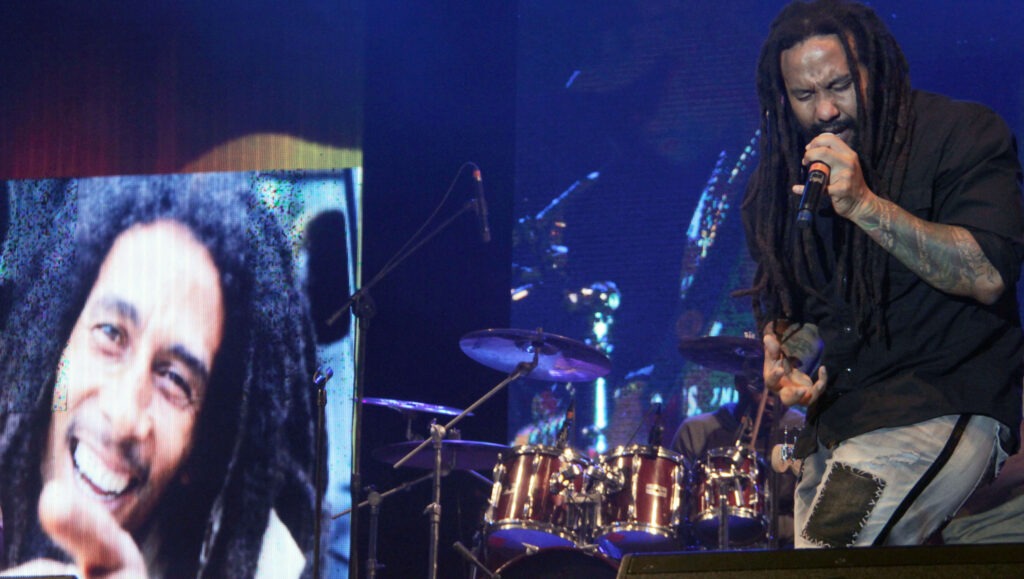
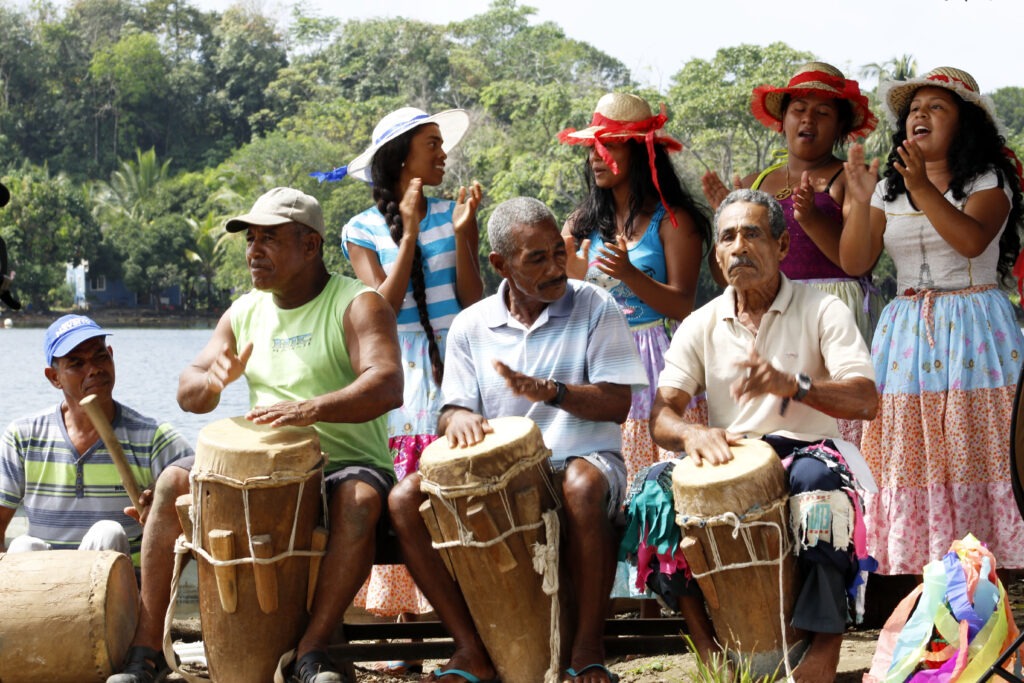
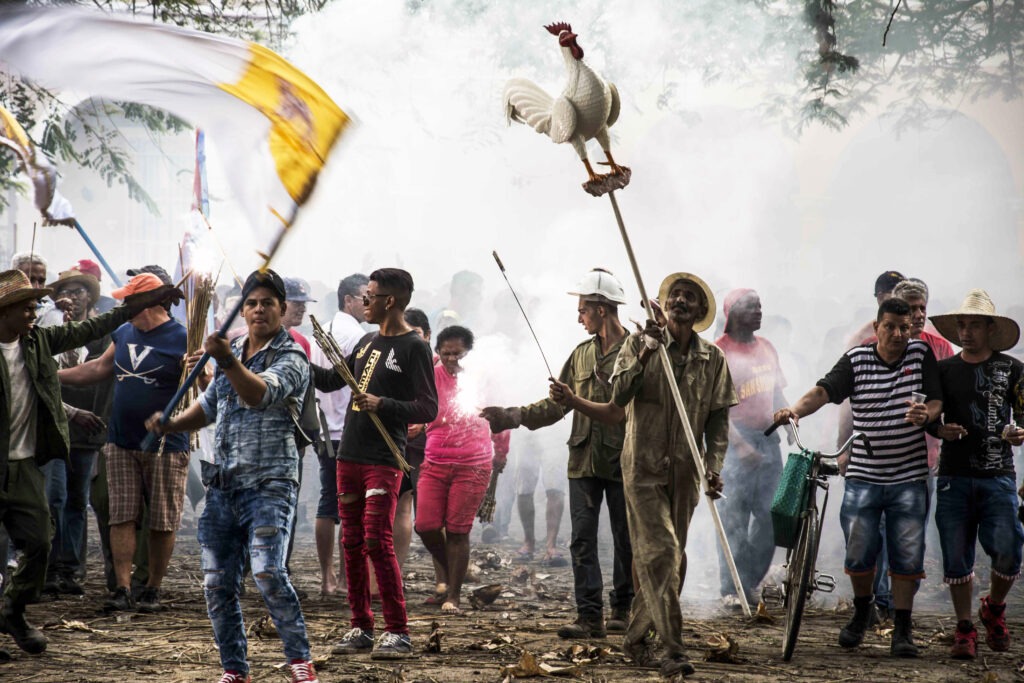
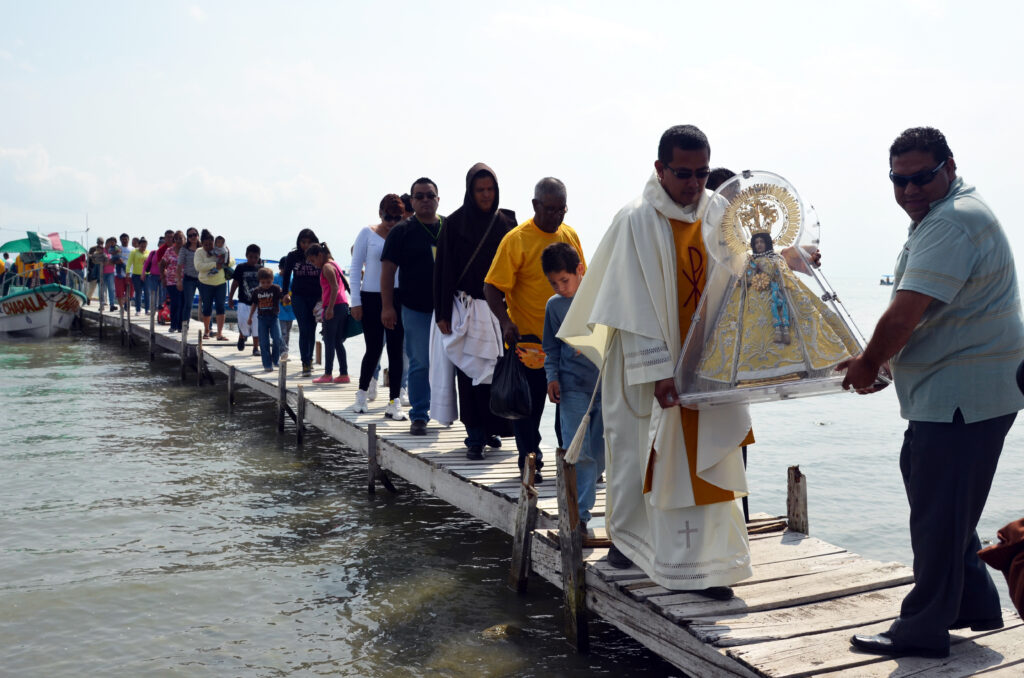
2019
-
Dominican Republic: Music and Dance of Bachata
For UNESCO, Bachata, known for its romantic lyrics and soulful melodies, is an iconic genre in the Dominican Republic. Rooted in rural life, it has evolved from humble beginnings into a symbol of Dominican identity, blending African, European, and indigenous influences to create a unique sound. -
Mexico: Artisanal Talavera Pottery
The process of making Talavera pottery in Puebla (Mexico) and Spain is a centuries-old tradition that requires skill and patience. The vibrant designs and intricate patterns reflect the cultural exchange between the two regions, making it a symbol of shared heritage. -
Venezuela (Bolivarian Republic of): Biocultural Program for the Safeguarding of the Palm Tradition
This program aims to preserve the knowledge and practices associated with the harvesting and processing of the blessed palm (palma bendita) in Venezuela. The program helps maintain local traditions while promoting environmental sustainability. - Colombia: Strategy for Safeguarding Traditional Crafts for Peacebuilding
This strategy aims to preserve traditional crafts through intergenerational knowledge transmission and practical learning, empowering vulnerable youth and fostering cultural entrepreneurship to contribute to peacebuilding and social inclusion.
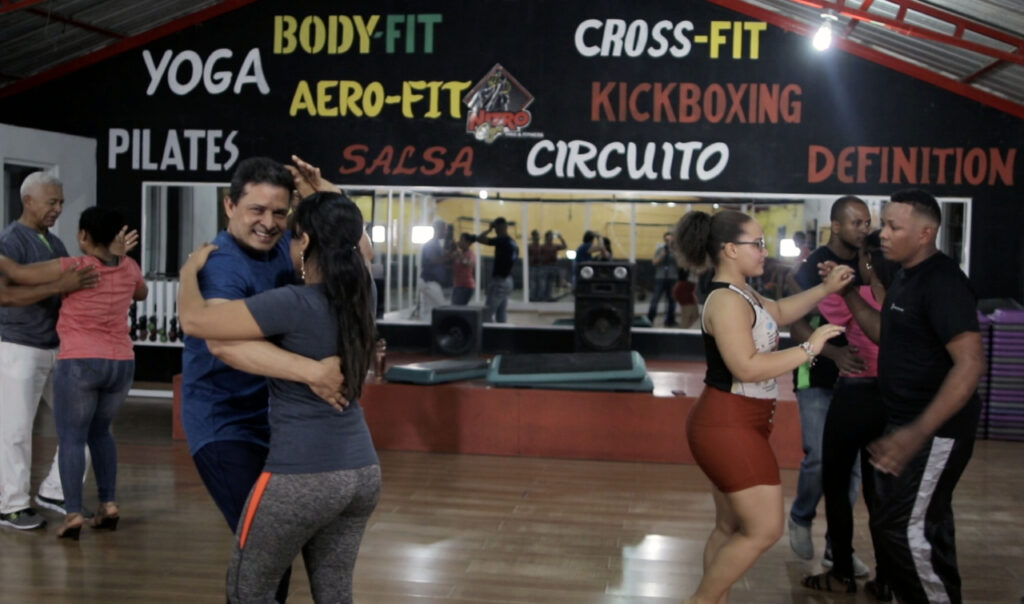
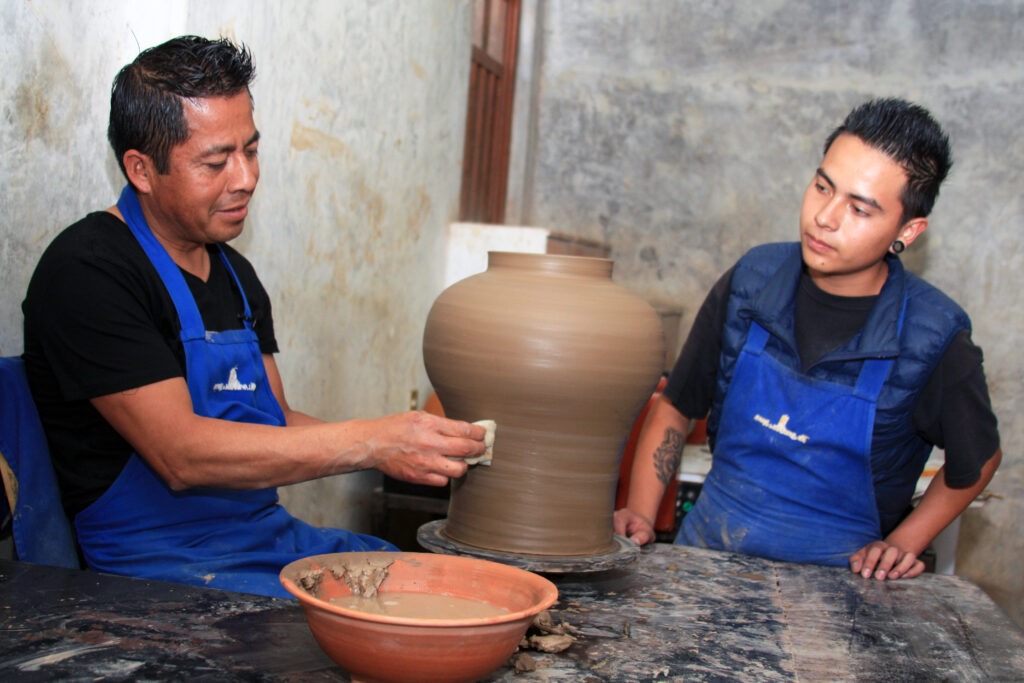
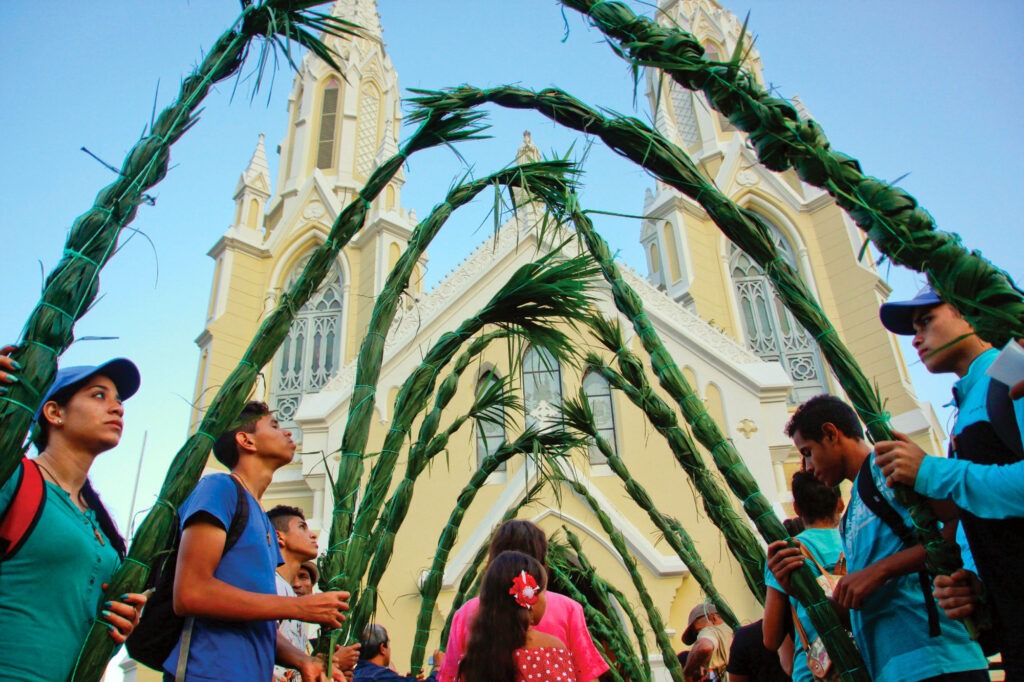
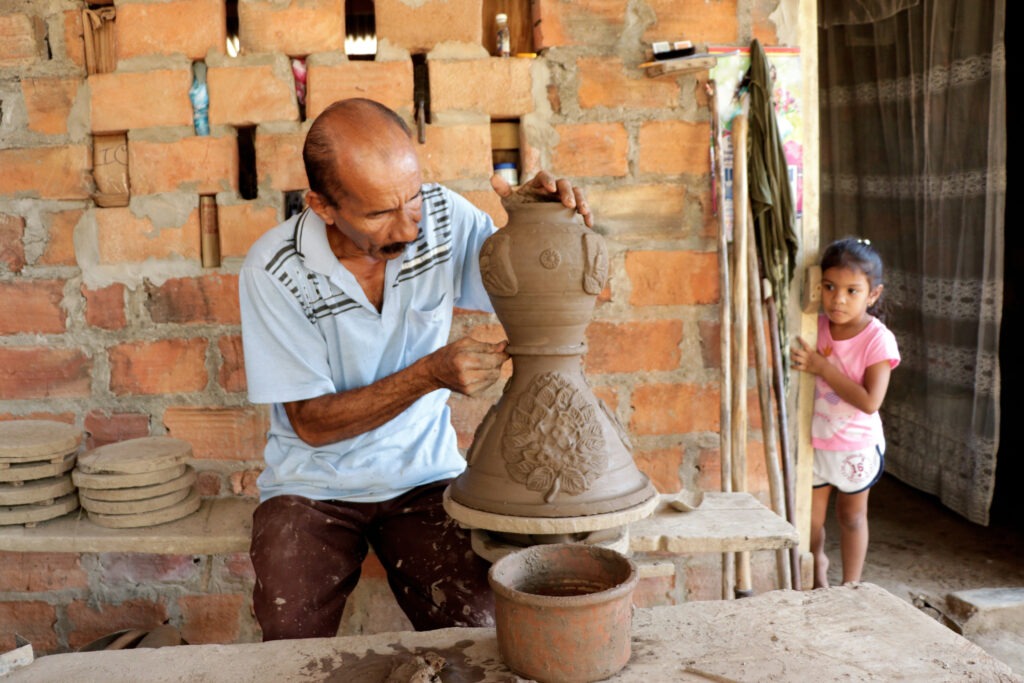
The cultural practices recognized by UNESCO from 2016 to 2019 showcase the diversity and complexity of Caribbean heritage. From music and dance to traditional craftsmanship, these elements highlight the importance of preserving cultural practices that define national identities. In our final article, we will explore the UNESCO recognitions from 2020 to 2023, further unveiling the rich heritage of the Caribbean region.
Moyann and Nigy Boy
Two of dancehall dynamic artists Moyann and Nigy Boy have joined forces to release their latest single, “Unfair,” a soulful anthem that delves into the complexities of relationships and infidelity.
The track showcases the unique vocal styles and lyrical prowess of both artists, creating a captivating blend of melodies and rhythms that is bound to resonate with listeners. With Moyann’s distinctive sound and Nigy Boy’s powerful delivery, “Unfair” promises to be a chart-topping hit.
Moyann, known for her previous hits such as “Backseat” and “Big Tingz,” has quickly become a rising star in the Jamaican music scene. Her melodic voice and thought-provoking lyrics have earned her a dedicated following, and “Unfair” is sure to solidify her reputation as a talented artist on the rise.
Nigy Boy, a visually impaired Jamaican dancehall singer and songwriter, brings a unique perspective and raw energy to the collaboration. Drawing inspiration from his Jamaican roots and personal experiences, Nigy Boy’s music is both authentic and compelling, and “Unfair” is no exception.
Listeners can expect a fresh take on love and heartbreak with “Unfair,” as Moyann and Nigy Boy share their emotional journey through music. The catchy hooks and infectious beats are sure to get fans singing along and hitting the replay button.
“Unfair” released by ONErpm, is a must-listen track that will leave you wanting more.
The video has garnered over 300K views in under 5 days and is receiving major attention island wide.

Source : Jamaican Observer – (Photo: Derrimon Trading Co Ltd)
Gathering all the essentials for a comforting Jamaican classic! Fresh herbs, Delect Corned Beef, and perfectly ripe breadfruit, ready to be transformed into a delicious meal.
Delect “Cook Up” Corned Beef with Roasted Breadfruit and Callaloo
Craving a comforting meal that brings you back to basics? Try Delect’s ‘Cook Up’ Corned Beef with Roasted Breadfruit and Callaloo! In the wake of Hurricane Beryl’s recent passing,
Delect has embraced the tradition of cooking on a coal stove, recognising that power outages are common during the hurricane season from June to November. Utilising Delect Corned Beef, popularly known as ‘bully beef’, this meal perfectly combines the savoury goodness of corned beef with the rich flavours of roasted breadfruit and fresh callaloo. It’s a nostalgic delicacy that brings a taste of home to your table, even in challenging times.
Enjoy the simplicity and warmth of this classic Jamaican comfort food!
Total Cooking Time: 1 hour 30 minutes
Ingredients:
• 2 cans Delect Corned Beef
• 1/2 cup Delect Tomato Ketchup
• 1 cup onion, chopped
• 1/2 cup sweet peppers, chopped
• 3 plummy tomatoes
• 6 cloves garlic
• 2 stalks escallion
• 1 sprig thyme
• 1/2 teaspoon black pepper
Method:
• Season and steam the callaloo, then set aside.
• Roast breadfruit and allow to cool for 30 minutes before peeling.
• Peel the breadfruit, cut it in half, and remove the heart.
• Sauté the fresh herbs (onion, sweet peppers, tomatoes, garlic, escallion, and thyme) until wilted.
• Add the Delect Corned Beef and toss for five minutes or until heated through.
• Mix in the Delect Tomato Ketchup and remove from heat.
• Place the steamed callaloo in the breadfruit halves, then top with the corned beef mixture.
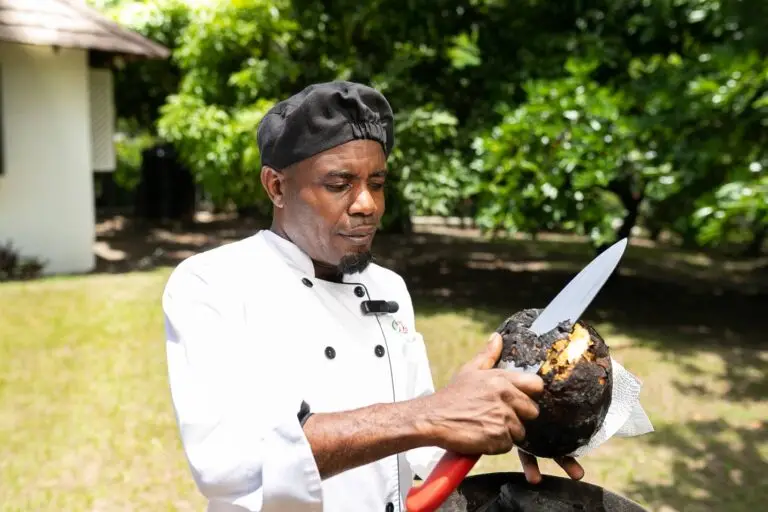
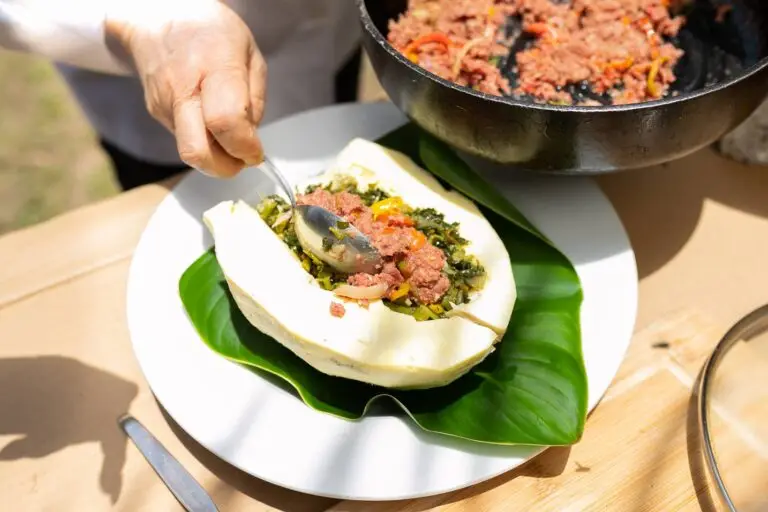
Delect Soursop Coconut Lemonade Punch
The most refreshing summer drink does exist, and it perfectly captures the essence of the tropics incorporating soursop, Delect Pink Lemonade Concentrate, and Delect Coconut Milk. Delect’s Soursop Coconut Lemonade Punch combines the sweetness and zest of lemonade with the creamy smoothness of coconut milk, all enhanced by the unique tropical flavour of soursop. Perfect for cooling down during the sizzling heat, this drink is a tribute to our resilience and resourcefulness as a people, using our local fruits to create something extraordinary. Savour the natural sweetness and refreshing taste of this creamy tropical treat, perfect for any occasion! Enjoy!
Total time: 35 minutes
Ingredients:
• 1 cup Delect Pink Lemonade Concentrate
• 2 cups soursop pulp (seeds removed)
• 2 cans Delect Coconut Milk
• 1 tablespoon vanilla extract
• 1/2 teaspoon nutmeg
• 1/2 teaspoon cinnamon
Method:
• Extract soursop pulp by removing seeds (30 minutes).
• Pulverise in a food processor or blender on high with Delect Coconut Milk until smooth.
• Add 1 cup Delect Pink Lemonade Concentrate.
• Combine the other ingredients and mix well.
Serve over ice and garnish to your liking.
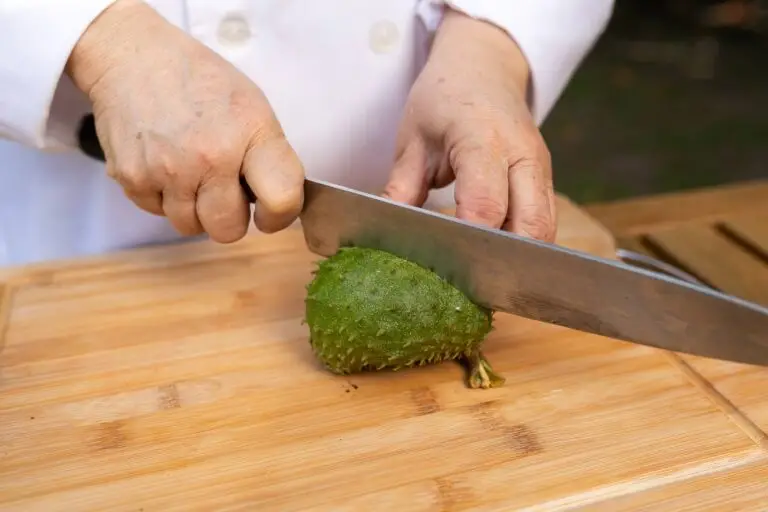
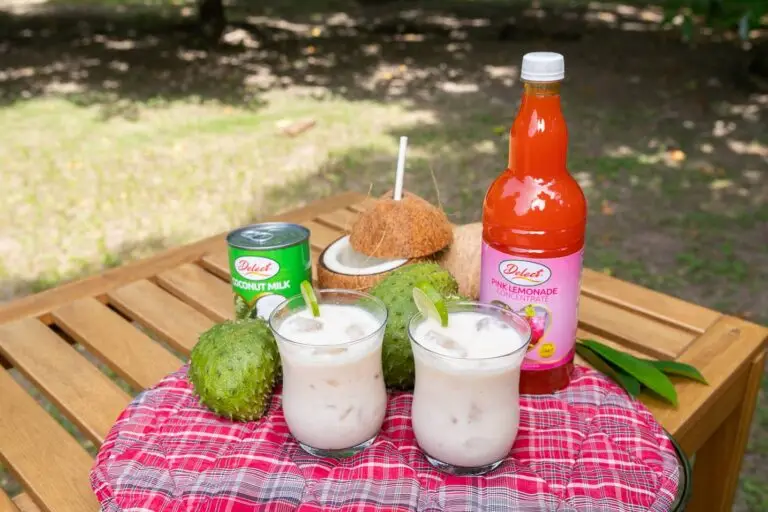
Richès Karayib takes you to Jamaica with a famous sculptor whose reputation is well established: Scheed COLE, CEO of Sculptural Elements and Construction Ltd.
With recycled materials like plastic, paper, cardboard, glass and sawdust, he can make art works that look real.
He can create larger than life sculptures from nature and environment, figures, entrance vestibules, etc…
What leads him towards his achievements:
– To work with integrity
– To operate in a way that is very professionnal
– To see his customers smiles.
Let’s discover together the artist and his art works.
About Scheed Cole
SCULPTURAL ELEMENTS AND CONSTRUCTION LTD.
The subtitles are available in English and Spanish!
About his work
Here are a few places in Jamaica where you will be able to see some of his greater achievements.
The Natural History Museum
Here Scheed recreates interior spaces to look like geographical locations all over Jamaica’s wetlands, dry forests, canopies, coral reefs and caves.
That project showcases his ability to recreate a realistic looking natural environement and also the natural history of Jamaica.
The Port Authority
In the Port Authority Scheed created replicas of 10 ft. long cannons that authentically looks as if they were from the 18th century and were weathered over time.


The S Hotel
Scheed created sculptures of national heroes like Nanny, Marcus Garvey and other iconic individuals like Bob Marley and Jimmy Cliff.
This project showcases his ability to create photorealistic portraits of individuals.
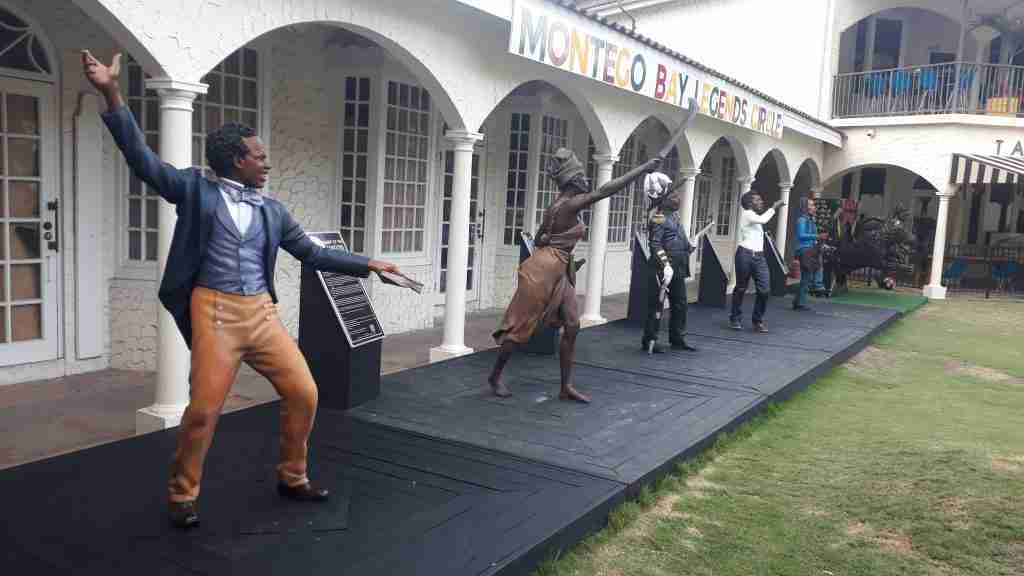
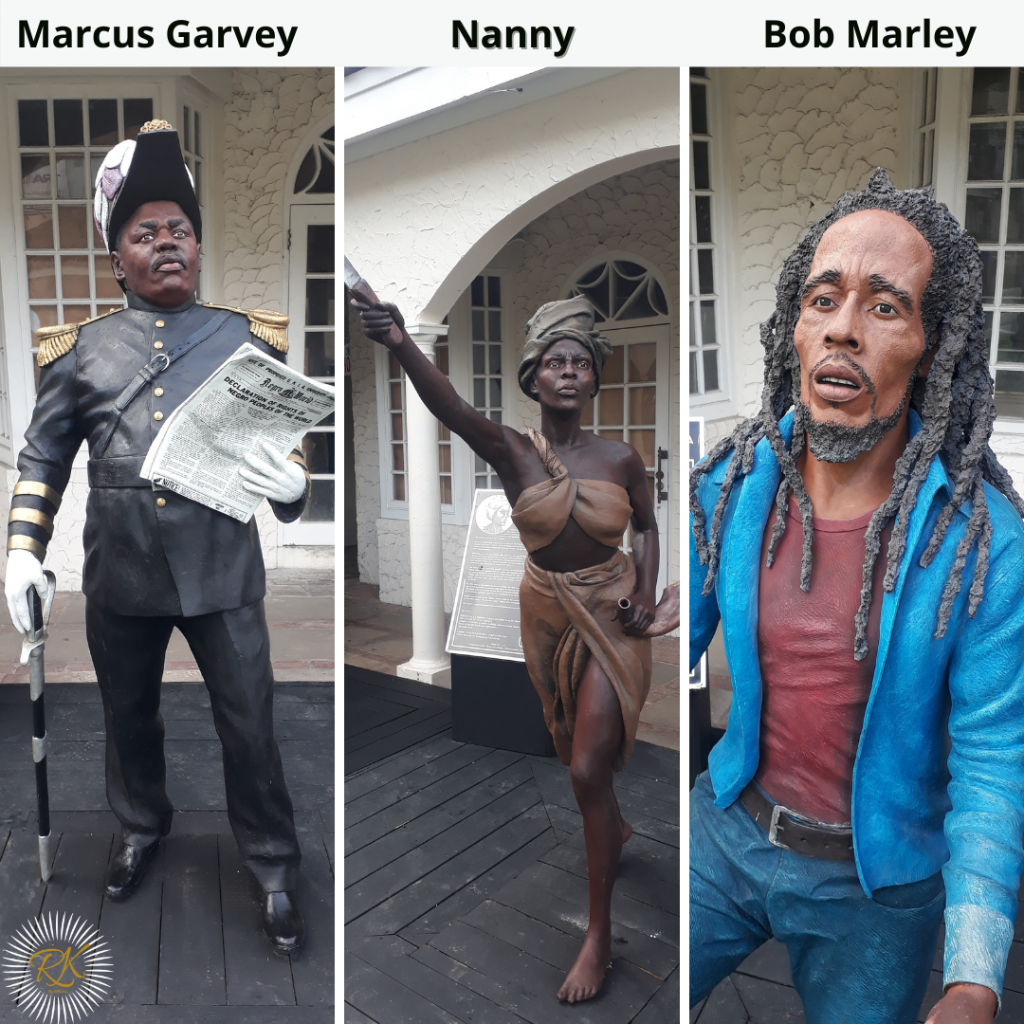
The Heritage Mall
Scheed created in that mall a large elephant.
Hellshire Beach
Scheed created an entrance vestibule for the Hellshire beach.
He also constructed gazebos.
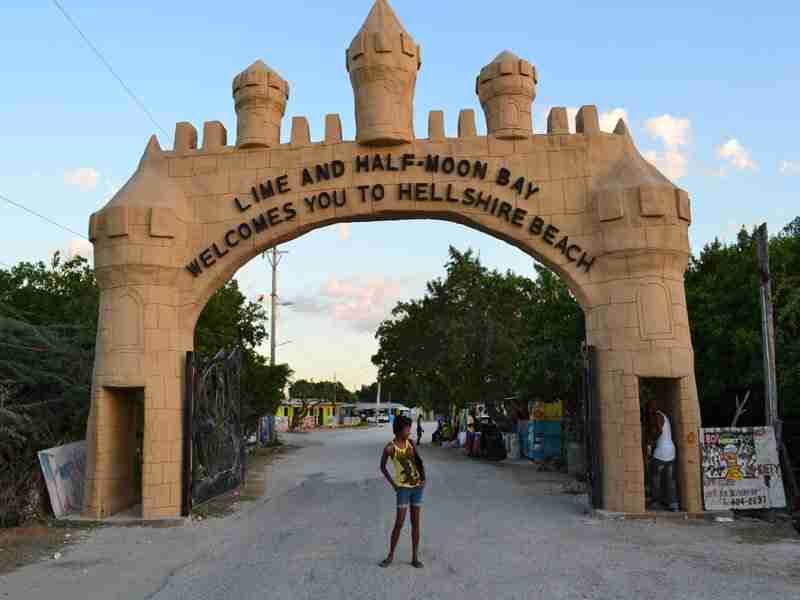
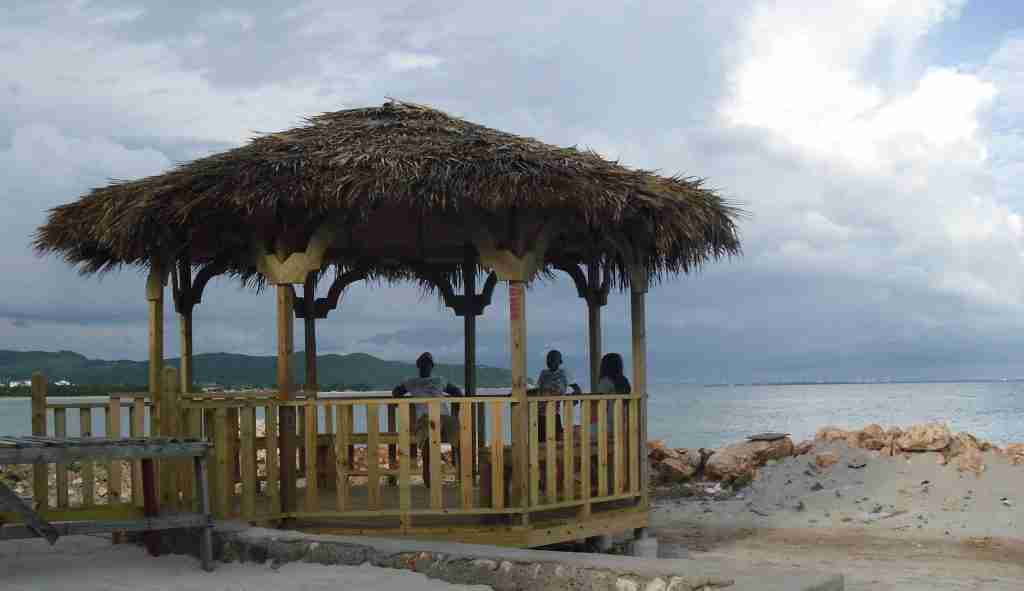
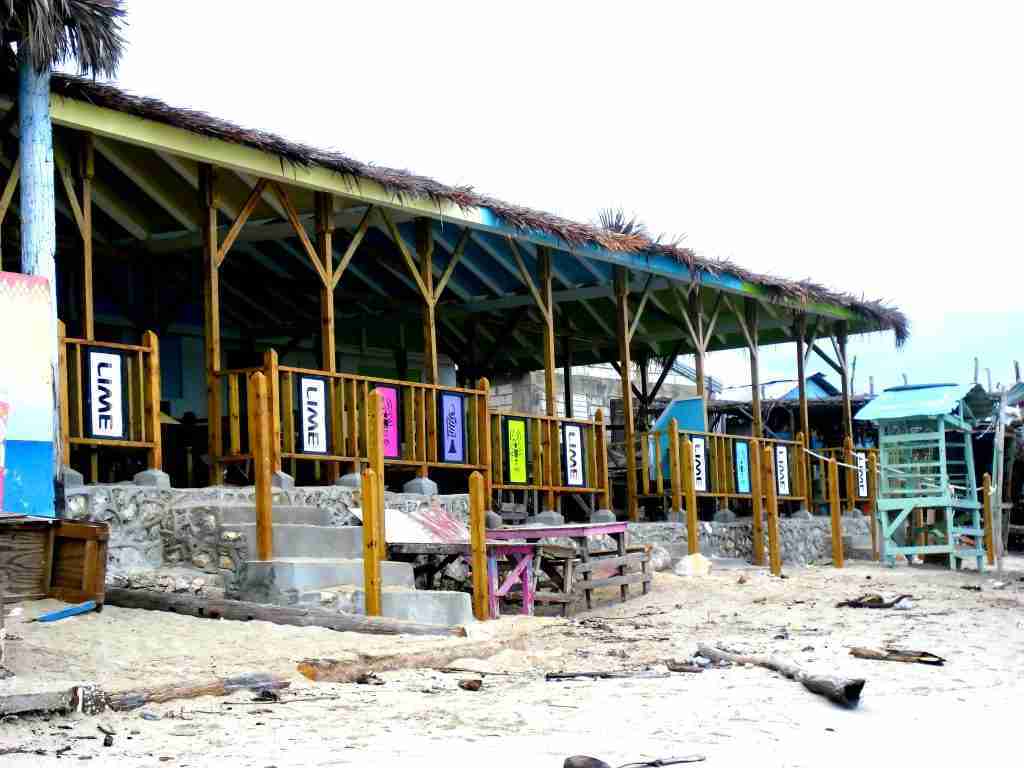
Raul Blaze
Richès Karayib takes you to Jamaica with Raul Davis, better known as Raul Blaze.
It is from Miami that we interview this multifaceted man: comedian, influencer, vlogger, trainer, language tutor….. so many caps (and we are far from knowing all about him!!), he is telling us more about him, about his job, his Caribbean vision.
Let’s discover, the one who is showing us all the caribbean life style , mainly jamaican facets and its patois.

MULTIFACETED MAN

A POLYGLOT
Try to imagine a Jamaican in the following situations !!
How Jamaicans tell you your food is good without telling you the food is good!
When Jamaicans try to tell a story while eating cane.
Caribean people giving driving direction to their house.
How to know when a jamaican party is over.



































